On Monday, July 30, I arrived in Togo where I would spend the next month discovering the country and doing 3 weeks of volunteering. The first 3 days, I spent in a hotel complex at the beach, because I needed a few days of rest after my journey from South America (Ecuador) to Africa (Togo). I was supposed to be picked up at the hotel by a member of Astovot, the local organization where I was to do my volunteering, on Wednesday, but I waited all day long in vain for anybody to show up… So, in the end, I stayed at the hotel until Thursday morning. I left the hotel only once and that was to get cash at the ATM. It was a very scary experience because of several factors: 1) they don’t use many taxis here, mostly moto-taxis and at first it didn’t seem very secure; 2) the hotel was in a rather dangerous area and it didn’t feel very safe to go outside; 3) my bank card didn’t work on some ATMs and we had to go to several ones until I could finally get some cash; 4) we passed through a big market with lots of people and it seemed absolutely crazy. I was really overwhelmed, not knowing anybody, being far away from the city centre, no real buildings or shops around, and I just wanted to leave again. Not being able to do that, I was glad to get back to the safety of my hotel…
On Thursday, August 2nd, I was picked up by a member of Astovot who helped me to get a car to Kpalimé, the place where Astovot’s headquarters are located and where I would be volunteering. They were very sorry for forgetting me the day before, apparently communication hadn’t worked very well between Astovot and SCI Belgium (later I would discover that they’re not great at communication in general). It was still a couple of days until my project would start and so they suggested that, in the meantime, I join another project that had already started and I had no problem with that. So Alid, the coordinator of all projects of Astovot, brought me to the house where this project is located. The project was the construction of a house for kids with difficulties at home; they already built a huge one a few years back and this is supposed to be an annexe. To be honest, they didn’t do much in the 3 weeks of this project and the construction hasn’t advanced much since they started it in 2015…
In this project, there were Emma and Salomé as only foreigners with Solo, Amen (called Anita), Komlan, Dodji, Michael and Djawad as coordinator. On my first night, there was also a Spanish guy, Oriol. Just like me, he arrived before the actual start of his project and so he joined the construction project for 2 nights. They all seemed super nice and gave me a warm welcome. We had a lot of Togo-Gin (an alcoholic drink – gin – in Togo), the guys played music on a djembe and we danced all night long. We had a lot of fun and suddenly Togo didn’t feel so bad anymore! 😊
During my 4 days with them, we did many activities: we went to the waterfall of Womé, we had an animation (music & dancing) with the immigration project (the one that Oriol started doing on Friday) and we went with the people from immigration to a biologic farm where we had some palm wine and went swimming in the river. Palm wine is won by cutting and then burning a palm tree so that you can collect the syrup inside the tree and by letting it ferment. Togo-Gin is also won this way, except that the fermented drink has then to be distilled.
We were a big group, because, in the immigration project, there were many people who would start their real project on the next day and who where just there for 1 or 2 nights, like myself in the construction project. We had a very nice weekend and I felt sorry to leave the next day. The people in the construction project liked to party, they had a lot of alcohol, music and good vibes. I was considering changing projects and just stay in the construction project, but my real project seemed much more interesting, so I kept my actual plan. Later I would learn from Salomé and Emma that the atmosphere in their project changed a lot, getting less good, because Dodji and Michael were just there to sleep with a white girl, get support for their own association and eat cheap food for 3 weeks and that completely killed the mood for everyone… Fortunately, they were thrown out of the camp after 2 weeks and the atmosphere got better again.
My own project, “éducation socio-culturelle” was supposed to start on Monday, July 6th, but when I went to the Astovot headquarters, they told me it would only start on Tuesday. Everybody, me included, was happy I could stay 1 more night, especially since that was the night the people from the immigration project visited us for some dancing and Djembe. 😊
Knowing very well that if I went to the headquarters early on Tuesday, I would just sit around and wait all day long (waiting is a huge part of life in Togo), I decided to join Emma and Salomé to the hairdresser and get some braids myself. It took way longer than expected: 4 hours for 2 ½ people ! 2 ½ because Emma got half of her hair braided and then decided she doesn’t like it and so they opened it again. The braiding was very painful; I don’t think any of my tattoos gave me that much pain! Pain on your head is really bad and it continued hurting for 2 days. It’s a good thing that the result looked good and the pain had been worth it. 😊 We went back to our house around 2PM and had lunch before I finally left them to join my actual project.
We observed several interesting things during these initial days :
- Togolese people think we Europeans live a very different life from them (true), e.g. we don’t know how to use knives – they always wanted to cut in our stead, so we don’t hurt ourselves –, we don’t wash dishes ourselves, we have no clue how to walk on a street without getting run over by motorbikes or cars – they were all the time taking our hands to help us cross a street or they screamed, “careful, bike!”, etc.; you see, most of this is absolutely ridiculous! In my own project, the Togolese girl, Inès, was even surprised we know how to use a key to close a door (WHAT???)!
- People in the street, especially kids, never stop calling aloud “yovo” (“white”) when they see a white person. In the beginning we made fun of that, especially Salomé, who would call back “ameibo” (“black”), but soon it became quite annoying, only being called “white” by local people. Can you imagine in Europe calling after a black person: “black, black, black!” in the street? You would probably go to jail for that. They don’t mean it as an insult, it’s just that there are few tourists in Togo and the few volunteers Togolese children get to see are a real attraction to them. It’s a much less intense in Lomé, the capital, where more tourists can be seen, but it can still happen.
- Togolese people LOVE their Togo-Gin. I like to drink alcohol, but Togo-Gin is really strong and since it’s homemade, every bottle of it has a different taste and it’s not always the best one…
In my project, we were 6 foreigners and 5 national volunteers, plus Donald as co-coordinator and Nestor as main coordinator. In reality, Donald was the main coordinator, because Nestor only arrived during the second week and left 2 days earlier than us… Donald is pretty young for a coordinator of such a big project (24 years old) and it was his first time as a coordinator, so he was very unexperienced. He got a lot of support from all of us, especially from me. Thanks to my time at JCI, I have already coordinated quite some projects. The local volunteers also helped, because some of them have already several years of experience in volunteering with Astovot. Despite his lack of experience, he did a pretty good job! 😊
The national volunteers were Boris, Anathor, Bienvenu, Inès and François. The expats were Nadia from Portugal, Pepe from Spain, Viola from Italy, Amanda from Denmark and Julie and I from Belgium. We were a very nice, multicultural and balanced group : people from many different countries, as many men as women and as many expats as nationals.
On our arrival in Yéviépé, we were welcomed by many children, by the president of the local organization hosting our project and by the secretary of the village council. In Togo, there are many strict rules about how to communicate with the chief and other important people in the villages: you can’t communicate directly, it must be via a third person even though everybody can hear what everybody says. I didn’t really understand all of their procedures, it was a bit weird. Also, the next day, we were invited to a village meeting on the main square where we had to present ourselves and where we were welcomed by the different representatives of the village. Even if it’s a very small village, every street has a male representative for the male residents and a feminine representative for the female residents. Then we had to go to the house of the chief of the village – who wasn’t there himself because he was sick – where we were welcomed again by all the important people of the village and where we had to present ourselves again, drink a Togogin with them and shake everyone’s hand. Then we went back to our house and the representatives came to us, welcoming us again. Really weird and a bit too much if you ask me.
The title of our project was “éducation socio-culturelle” and it took place in Yéviépé, a small village about 30 minutes away from Kpalimé. The project had 2 main goals : 1) giving summer classes to children who have difficulties with their classes; 2) entertaining the children in the village with educational and cultural games.
Astovot has been doing this project for a few years, but this year it didn’t work out very well, unfortunately… The reason is that there were many social problems in Togo this year and many manifestations. In Togo, they have a huge political crisis and lots of manifestations, but nobody really talks about it; if compared to countries in Central and South America where there is no other subject than their political crisis, it seems a bit weird that in Togo this is never a topic of discussion. Anyway, these issues caused the schools to prolong classes one month longer than usually and since the children still had to go to school, we couldn’t give additional classes and we had much fewer children at our activities than there normally would be.
We had about 10 to 40 children every day and so we could do some games and activities, but much less than planned. All those children were very young (1-10 years old) and most of them didn’t speak any French, only Ewe, one of the national languages. So, one of the national volunteers always had to translate the rules of the games the expats were organizing. It was very annoying and a bit frustrating… The village council promised to help us in getting an accord with the director of the school so that they could join us instead of going to school, because there were no classes anymore anyway, but the director didn’t agree. He said that it was the council’s mistake, they should have started procedures to get to an accord weeks earlier, but since they hadn’t done anything, it was now too late… ☹ We still tried to make the best of it and do activities with the children that didn’t go to school. We played ball games, we did some singing, dancing, coloring, played football, and many other games.
Just like in my previous project in Ecuador, everything was going very slowly here as well and we had way too much free time. The other European volunteers were a bit annoyed by this, but I already knew how this works and so I accepted this situation with only a little annoyance that was mostly boredom.
This is what our day looked like: Breakfast was at 7AM . We usually started our activities at 8AM and worked until 11AM. Then we went back to our camp so that those who had kitchen duty that day – we changed tasks every day – could prepare lunch. After lunch, we always had free time (siesta) until 3PM. Then we went back to the library – they place where we organized our activities – to play with the children until 5PM. This was our official schedule, but, the first week, we didn’t do any activities with the children and we had basically only free time and the next 2 weeks we didn’t work on Wednesday afternoon or on Thursday. On some other days, we had almost no children for our activities, because they had to work at home. So, actually, we didn’t work much at all. I often used this free time to work on the publication of my PhD.
Even though we had an official schedule for activities, we spent much more time with the village children; they came to our house at 7:30AM and stayed all day until 9 or 10PM. This was nice, but sometimes also annoying: you couldn’t just sit outside in your free time and read or relax (or work on your computer), because there were always some children trying to see what you were doing. So we actually spent a lot of time in our rooms. In addition to us not having any privacy, the kids staying so late in the evening was problematic, because many parents are used to hit their children, especially if they stay out late at night and we didn’t like being the cause of the children being mistreated. Another thing that was irritating about the children – not only in our house but in general – was that they constantly asked for something: “I like your shoes, give me!” or they just pointed at our jewelry and said, “Give me!” It was very unpolite and they were really shocked when we said, “no!” I didn’t like this at all. They also stole or just took things, e.g., if you left your phone somewhere for a second, they just took it and started playing around without even asking. Of course, all the children were super nice and sweet, don’t get me wrong! We liked them a lot and it was great working with them! 😊
So, this was our project in Yépiévé, Togo, and it was pretty disappointing for everyone. I had hoped it would be much more school support and actual teaching, less “just playing” and it felt like we didn’t create much of an impact. However, in reality, we did have an impact: usually parents don’t play with their children and they have no access to the “public” library and to any games. We gave them 3 very special weeks full of games, playing and entertainment. Some might even have learned some more French than they had known before our arrival. In addition to that, on our last day with them, we organized a game where every child had to sing a song or recite a poem and for this he/she got a present. Most volunteers had brought presents from home: pens, books, bracelets, etc. and the children were very happy with their presents. So, it wasn’t a complete waste of time. 😊
What about our other activities ? On our first weekend, on Friday, we went back to Kpalimé to get the dresses we had ordered the day before from the tailor. We had ordered dresses for the girls and t-shirts for the guys and they were beautiful! Unfortunately, the dresses for the girls didn’t fit and we had to wait 2 hours until everything fit… Then we went to Tomégbé where Astovot was organizing a festival. It was already 4:30PM when we got there and the festival was supposed to finish at 5PM, but as always in Togo, everybody was 2 hours late and so the festival had barely just started. All the people from other projects had only got there 30 minutes earlier than us and we still had a lot of time there before it ended. We enjoyed some traditional dancing and music and then our group went to get a beer in a bar. When we got back to the festival, Djawad was waiting for us with some Togogin and we had a few drinks, singing, dancing and being the attraction for a group of kids. Around 7PM, the festival was over and since it started raining heavily, we all left. We were staying at Astovot HQ in Kpalimé for the night. There we cooked dinner before joining the other groups at “Happy Life”, a popular bar, where we had a few more drinks, danced and had a good time. It had been a wonderful day and we had had a lot of fun! 😊
The next day, on Saturday, we spent the morning walking around the market. The other girls bought some fabrics and then we went back to the tailor to order our dresses. It was pretty stressful, because Inès went with us. I don’t know what’s the matter with her, but she was all the time super stressed out and rushing us: “Why are you looking at that, do you want to buy it? Let’s go! Keep moving! This is not where the stuff is that we are looking for!”. Fortunately, I had already been to the market before with Salomé and Emma and had had time to discover it. Otherwise I would probably have been just as mad as the other girls. Maybe in Togo people aren’t used to stroll around a market like us, maybe they only go to the places they need to buy something, because it’s something very normal for them? We didn’t find out… In the afternoon, we went to the construction project because it was their African Day and they had invited us as well as the immigration project. We had lunch with them: traditional fu-fu (a paste of manioc with a brown meat sauce and goat meat). It was ok, but it won’t become my favorite food, that’s for sure. We stayed there for a few hours, but everyone was pretty tired and so we went back to Astovot. We cooked dinner and some of us went out that night, but most were tired and stayed home (me included). Finally, on Sunday, the girls went to the hairdresser and got braids. It took a lot of time and I was only there to translate in case of problems, so I was bored most of the time and we were all happy when we finally got back to Astovot where we had lunch. After lunch, we went back to Yéviépé and that’s the end of our first weekend.
The next weekend, we went to Kpalimé again, this time only on Saturday and because of Nadia’s birthday. First, we joined 2 other groups on an excursion to Peek d’Agou, the highest mountain in Togo. It’s still not very high and it was not really a hike, because we walked on the street all the time. Unfortunately, the weather wasn’t good and so we didn’t get to see anything. We still had a nice day and I was happy to spend it with Raphaëlle, another Belgian girl in the renovation project. I liked her very much, she is really nice.
In the evening, after dinner, many people came to Astovot and we celebrated Nadia’s birthday. It was fun: there was a lot of music, dancing and some drinks. When we were out of drinks (not everybody had brought something, so we were out of drinks fast), most of us went to a bar where we continued dancing and celebrating until 2AM.
The next day, we were supposed to go directly from Kpalimé to the waterfall in Womé, but, as always, things didn’t go as planned: our driver told us he wouldn’t take us to the waterfall, because the road was bad and so we just went back to Yéviépé. We tried to find a solution and we were thinking about going there by motorbike, but it turned out that this was too expensive. In the end, Donald, Nestor and Anathor managed to get the driver to take us to the waterfall anyway. I guess he just wanted to make more money by first bringing us to Yéviépé and then taking us to Womé – which meant going part of the way back to Kpalimé. Not everybody did go to the waterfall: Bienvenu, Inès and Anathor stayed home. It was fun anyway! The water was refreshing and we met another group of Spanish volunteers and we played some games with them. The only annoying thing at the waterfall was a group of locals that wanted to take way too many pictures with us. At some point I told them that it’s enough, I don’t want any more pictures, but when I swam away, the guy just followed me and filmed me while I was swimming. Creepy! But in Togo taking pictures or filming people you don’t know is not something weird or forbidden and they don’t even feel it as an intrusion in someone’s life…
Two other nice events took place in our camp in Yéviépé. During our second week, on Thursday, our national volunteers organized an “African Day”. They got up at 4AM to prepare the food for the day: a kind of porridge in the morning, foufou for lunch and goat brochettes with some kind of corn potato in the evening. All the other projects came to visit us that day and there was a lot of music, dancing and exchanging. It was quite fun until late afternoon when everybody left and we expats realized that all our national volunteers had disappeared! We were a bit frustrated about that, because it was their day and we thought we would play games or do some activities together. So, in the night, the atmosphere wasn’t really good anymore and everybody went to bed early.
The next week, during our last week, we organized a “European Day”, also on Thursday. That was amazing! On Wednesday we went to the Indian bazaar in Kpalimé to get supplies and on Thursday, we started around 6AM to make pancakes. Unfortunately, we didn’t have a pan, so we made them on the inside of the cover of a pot, improvising as best as we could. The pancakes were good, but it was very slow to make and so we also bought some bread, otherwise nobody would have been satisfied. We spent the rest of the morning relaxing and for lunch, we cooked pasta with eggplant, zucchini and Kiri (a type of cream cheese). For dessert we had Belgian waffles (Julie had brought them) with freshly made apple sauce. It was delicious, everybody loved it! In the afternoon, we went to a biodynamic farm nearby and learned something about the difference between biological and biodynamic farming. Biodynamic farming focuses a lot on the influence of the universe, i.e., the constellation of the stars, the cycle of the moon, etc. We weren’t convinced about this, but the owner argued that for ages people knew that on specific moon phases these or those plants grow better or not and it’s true. We spent a very nice afternoon there, visiting the farm and then hanging out at a beautiful spot surrounded by huge bamboo trees next to the river. It was really nice! 😊
Then we went back to the house and we started cooking dinner: nachos with guacamole, roasted bread with tomatoes and onion and Spanish tortilla. Amazing food!
Finally, we spent our last weekend together in Lomé, but later more to this. Let me tell you a bit about our life in the camp.
Our camp was in a small blog of several houses. We had 4 rooms: 2 for women, 2 for the guys and one kitchen. Only in one of our rooms were two beds and the girls shared them while I had the other room to myself, not minding sleeping on the floor for a few weeks. In the beginning, we often cooked outside, but then it rained more and more often and so we kept cooking inside. We had 2 small ovens on which we cooked with charcoal. We had one common area outside of the girl’s room where we had our meals together and where we spent most of our time when we weren’t in the kitchen or in our rooms. There was a well in the courtyard where we had to get water each time we wanted to cook, wash clothes, go to the toilet or shower. There was no running water anywhere, but soon we got used to live this way and it wasn’t as bad as it sounds. It was just a bit more difficult and you really learn to appreciate running water! Cooking with only charcoal also means that you learn to appreciate cooking with gas and electricity: each time you want to make tea or coffee, it takes more than 30 minutes and a lot of work to get some water boiling. That’s exhausting and discourages you from actually making any tea or coffee. I didn’t mind showering out of a bucket, but I much preferred showering in the river in Ecuador.
Something that was very hard for me – and for the others – was that there were no supermarkets around – not even in Kpalimé. If you’re used to going to a supermarket or a shopping mall to get all your food and everything and suddenly that doesn’t exist anymore and you have to go to small stores and to the market where they change the prices of the food constantly – especially if you’re white -, it’s hard. Once I even dreamed about being in a supermarket…
Finally, there is the dirt and the bad roads. I got used to bad roads in South and Central America, but that didn’t make it any easier when you’re on a motorbike going from Yéviépé to Kpalimé or the other way round. Every day, there seemed to be more holes than the day before and it was the worst when it was raining or just after. There was also so much dirt and dust everywhere, you never seemed to be clean…
Finally, let me tell you about the relationships in our group and about the challenges we faced:
First, we all got along pretty well, then subgroups formed and there was a lot of tension during our second week, but finally, during our last week, relationships got better again. The thing is, during our first week, we all only started to get to know each other, so there was no tension, but during the second week there were many misunderstandings – mostly between Europeans and locals – caused by language problems. Julie and I were the only foreigners who spoke French; all the others spoke only English (some of them understood some French, but communication was difficult) and only Boris spoke English while all the other nationals spoke only French; so it was my task during the camp to translate everything. Obviously, I’m not a professional translator even if my French and English are very good, so sometimes information got lost or was misinterpreted either by me or by the person I translated for… One of the main problems was the money: if you ask someone if you should order for him, it means in Togo that you invite him and that you pay, while for us it only meant “I will order for you while you are not here but then you come, drink/eat and pay”. Sometimes they would ask us if we like something and then they bought it for a lot of money without us agreeing to the price first and we just had to pay. That didn’t sit well with us. Then there was the matter of participating in work/group activities: François never did anything and Inès didn’t do much apart from cooking. We helped in the kitchen, but she designated herself as the main responsible for cooking. Finally, there was the matter of national guys hitting on foreigners: Bienvenu tried to hit on every woman in the camp, Anathor was hitting on me and François was hitting on Amanda and none of us wanted them… I, for my part, pretended from the beginning to be married, so that all guys would give up very fast. Viola did the same. That was very lucky for us, because Amanda often had a hard time. She was even stalked by François for some time after the camp. Djawad was madly in love with me, even though I pretended to be married. He kept finding reasons to come to our camp or to talk to me. He would call his sister, Inès, and tell her to give me the phone, because, obviously, I wasn’t picking up when he was calling me.
Between us expats, a big challenge was that we were several people with a very strong personality: Nadia, Viola and me. It’s not always easy to get along if there are that many headstrong people.
Another matter was the food and our health. Sometimes Inès would make a salad/pasta mix and she would only wash the vegetables but not cook them. Then we had sardines from cans almost every day and she left the bones and skin and everything and she used a very strong spice that nobody liked. The first week, we ate the same every day, for lunch and dinner : spaghetti, rice or couscous with a tomato/sardine sauce. At the end of the week, we couldn’t see tomato sauce anymore! In addition to that, due to uncooked vegetables, we all got sick: some couldn’t keep the food down and vomited after every meal, others had bad diarrhea or constipation. We complained a lot and made Inès cook more varied food in the second week, but we still were sick most of the time. It only got better when Nestor and Anathor started cooking sometimes instead of Inès. That’s when we realized that it’s not the Togolese food that made us sick, it’s Inès’ food! So, we asked Nestor and Anathor to cook as often as possible, trying not to offend Inès too much. But honestly, her food was the worst, she should not be head-chef in a camp!
At the beginning of our third and last week, we had a big discussion and talked about all that wasn’t going well. Thanks to this meeting and thanks to it being our last week I guess, the situation got better and we got along much better. After all the problems we had faced, we actually became friends, something I didn’t expect during our second week. Another factor that made us connect more was Nadia’s birthday party on Saturday and the visit of an Indian bazaar in Kpalimé where we were able to buy some European food: Pringles, chocolate, cookies, etc. This improved everybody’s mood a lot! 😊
Thanks to the fact that we now got along much better, we accepted to finish our camp on Saturday instead of Monday and to spend the weekend together in Lomé. We wouldn’t have done anything during the weekend anyway. Well, not all of us joined: Inès, Bienvenu and François didn’t join us and Nestor had already left one day earlier, but I don’t think many people minded. Everybody was happy François was finally gone – besides, he hadn’t spent 1 single weekend with us – and except maybe for Nadia and the national volunteers, none of us minded Inès not being there. Bienvenu was nice enough, but the last couple of days he had been in a bad mood, I guess because he couldn’t “get” a white girl in our camp, and it wasn’t too bad that he wasn’t there.
On Saturday morning, we packed all of our stuff and we left – for once just as planned – at 10AM. When we got to Astovot, we unpacked and we had a debriefing session with Alid. It’s a good thing I didn’t know then what I know now or this session would have been much different. Later I learned that Astovot refused to pay for all of our food; e.g. we insisted on eating fruit and apparently we had wasted too much food during our first week – not true in my opinion) and Donald had actually had to pay for some of the food himself! We have paid 200€ for 3 weeks of volunteering; ok, part of it goes to Astovot, but our project didn’t need any tools or anything so the biggest part should have been for accommodation and food and it’s impossible that it wasn’t enough money. I also learned that Alid and Felix (manager of Astovot) made lots of reproaches to Donald and said he hadn’t done a good job which is bullshit. As head coordinator it was Alid’s job to make sure there was one experienced coordinator in our project and since he knew in advance that Nestor would only join us later and not be there much, it was his damn job to find another experienced coordinator for our project! Donald had never coordinated a project before and was completely overwhelmed and for his knowledge and experience he did a pretty good job. Anyway, I didn’t know this then and so I wasn’t able to talk about it during our debriefing, unfortunately.
After our debriefing, we went to Lomé where we had a very late lunch (5PM) and then split up. Pepe, Amanda and Viola stayed at Anathors place, Nadia and Julie stayed at Boris’s place and I stayed at Donald’s place. Donald’s place was pretty nice, he had a small and simple room in a block of a few houses with one shared shower and one shared toilet. Fortunately, it was quite clean and it was a “real” toilet, not a Turkish toilet like at Anathors place. There was no running water, but he was very kind and always went to get the water, so I didn’t have to carry it the 500m from the public well. 😊
When we arrived, Donald’s neighbors told him that another neighbor’s kid had gone missing that morning. The mother had sent her away to get something and she never came back. It’s terrible, especially because the girl was only 1 ½ years old. Children grow up very differently from us, but sending an 18-month-old girl alone into the streets to go get something and that in the capital!? Fortunately, they found her the next day, but what a shock! Donald’s neighbors were all very nice and friendly and they always greeted me and talked to me. The day I left they were like “You’re coming back soon, right!?”. So sweet! 😊
Later that night, we all went to a fast food place and met up with the people from the renovation project: Raphaëlle, Mizuki (from Japan), Edoardo (from Italy), Jean-Marie from Togo. We had spent quite some time with them during the last weekends and we always had a good time together. Tonight, there was a lot of tension, because Viola was in a very bad mood. We had had a fight and weren’t talking, Edoardo and Raphaëlle had had a fight and weren’t really talking and all of us were tired. So we had a drink, danced a little and then went home.
The next day, we got up early and Donald tried to get a taxi for us and for Boris, Nadia and Julie to Anathors place. Somehow it wasn’t easy and it took us a few hours before we could finally leave. From there, we went to Anejo where we had a short stop to look at the place where the lake and the sea meet and then we went to Togoville. This town is located on an island and you have to get there by boat. When we finally got there, we were starving. We knew the others from the renovation project were there and we were expecting to just have lunch with them, but when we got to the island, it wasn’t like we had expected: there were two guys who insisted that everybody who visits the town had to pays 3000 francs and that you can only visit the town accompanied by a guide. The others had been waiting two hours for our arrival and they were starving as well. After 20 minutes of negotiating, Donald convinced them to let us in for free. Honestly, in what town do you have to pay an entrance fee!?!? However, the guy insisted on being our guide and instead of just showing us the nearest place for lunch, he brought us to the Maire of the village who told us a very long story about the history of this town – in a flat and boring voice that made us almost fall asleep. We were very angry, because we were hungry, we didn’t want a tour and we didn’t understand a word the guy said. I was sitting next to Boris and we were having a fun conversation on WhatsApp because we were sitting behind the maire, but the others were in full sight of him and couldn’t talk or use their phones, because they didn’t have reception. So, Boris and I did have quite a lot of fun while everybody else looked like they were about to explode. We insisted that the next point of the visit is a place with food and that’s when we discovered that there was no food left on the island! WTF!? That was it! We decided to stop this stupid visit and to go back to the mainland. That’s when we split up: the people from renovation went to Anejo and we went back to Lomé and we had lunch on the way. Again, it was 5PM when we finally got some food and we were starving…
Back in Lomé, we went directly to the beach where we spent the evening in a bar, enjoying the view of the full moon over the sea. It was beautiful and we had a nice evening. 😊
The next day, we went to the market to buy souvenirs. Amanda was quite in a hurry because her plane would leave at 12PM and so our priority was helping her find souvenirs. At 10AM, we went with her to the airport and then we went to the “Fetich market”, which was a huge waste of time: 1) Our taxi driver tried to rip us off. I told him he would not get a cent more than what was the normal price! 2) The marked asked a 3000 francs entrance fee that we were not ready to pay, so we left again without even visiting the market. We went back to the normal souvenir market and bought some more stuff until we were all hungry and went to a cafeteria. In Lomé, it’s not common to go to restaurants; mostly you would go to a cafeteria that has pretty cheap food like rice, pasta or fries with omelette, meat or fish. Nadia and Boris had decided to spend the day together by themselves, because they had started a relationship and since it was their last day, they preferred to spend it together. Understandable. Later we met them again – by chance – at the bar on the beach and we had one last drink together. It was our last moment together, because that night Donald and I accompanied Boris and Nadia to the airport. Boris needed moral support and what don’t you do for a good friend? 😊 Afterwards we went for a drink, but we didn’t meet the others anymore and the next morning, all the other volunteers left.
Donald and I spent the next day just relaxing and, in the evening, I went for dinner with Yawa, the national secretary of JCI Togo, and with her husband. It was a very nice evening; these two people are great! 😊 Later, I went for a last drink with Donald and Boris and the next day I left. That was an experience, OMG! In the morning I got a message from the airline saying that my flight was delayed one hour and so I thought I could get to the airport one hour later than planned. Donald had an exam that morning and I waited for him to come back before going to the airport with him and that was my mistake… I should have left just as planned at 10AM, because, in the end, I only arrived to the airport at 12:15PM. Usually, in Togo people are always late and nobody cares, but here the airline had already closed the check-in and they didn’t want to let me fly anymore!! Fortunately, I had done the online check-in and only needed them to accept my luggage and after quite some pleading, they accepted it! Juhuu! I was super stressed out and I swear, I will never get late to an airport again, for any reason!
Togo had been quite an experience/adventure. It was my first time in Africa and Togo being a very poor country that is not used to foreigners and tourists, it was a huge challenge! Everything was different, no running water, no real toilets, no supermarkets, very hot weather, a lot of rain, people calling “yovo” (“white”) after you all the time and always trying to rip you off or getting something for free from you.
In addition to that, the volunteering organization wasn’t the best. I’m not sure I would recommend working with Astovot to anybody. Communication was really bad, in every possible way, we only got some fruit and some good food after insisting on it; we really don’t know what happened to all of our money since apparently it wasn’t used for food, the coordinator was inexperienced and got no support at all from headquarters, only reproaches; the projects weren’t well organized and almost none of the projects did what they were actually supposed to do. I heard that in the past, it has never been like this, usually projects were well organized and worked well, so maybe I just went there the wrong year…
Anyway, it was a very enriching experience and I’m not sorry I did it. I learned a lot, met some challenging people and some who became my friends and I got to know a culture I didn’t know anything about before. I was very happy when it was over and I’m not sure I’ll ever go back to Togo, even if I’ll miss some of the people there a lot. This experience has made me grow a lot and I feel like after mastering this, anything can come!




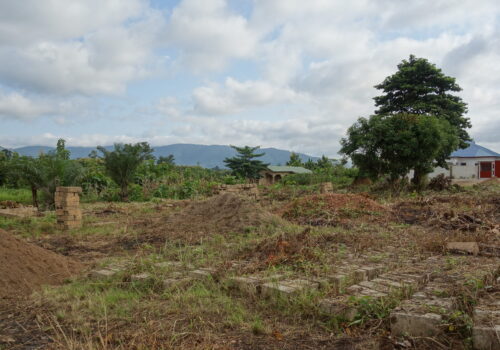
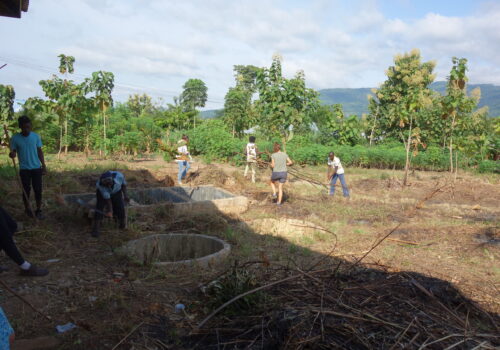
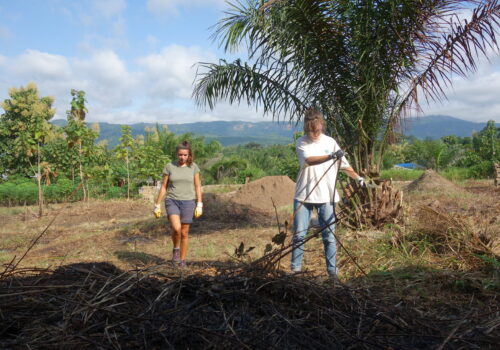
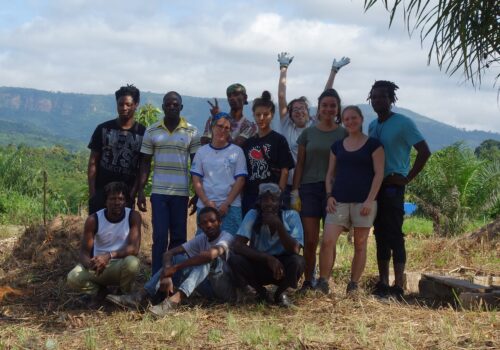
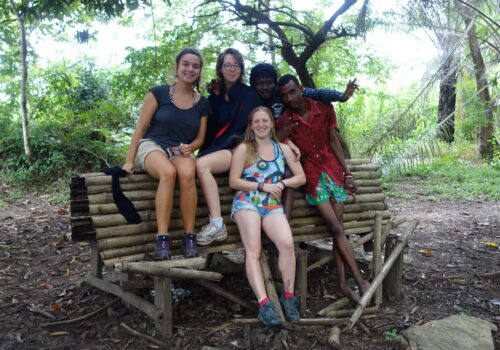

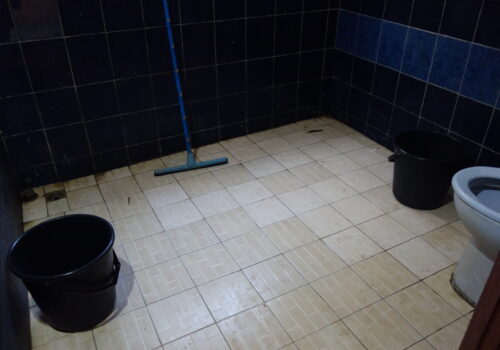

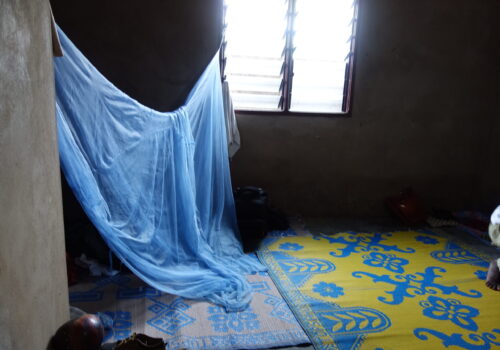
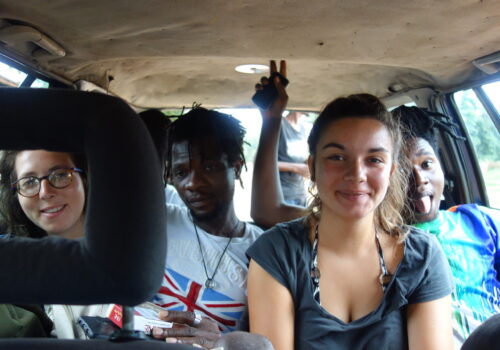
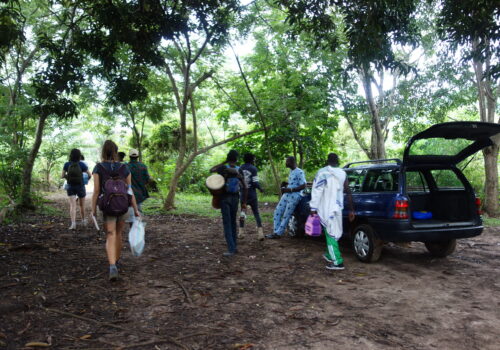
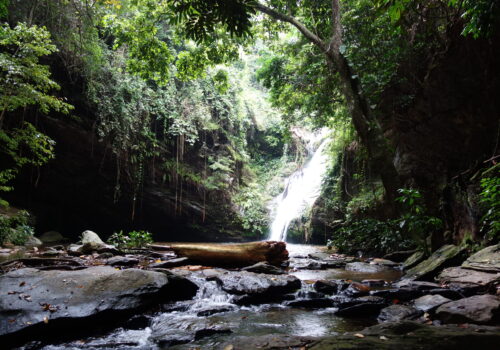
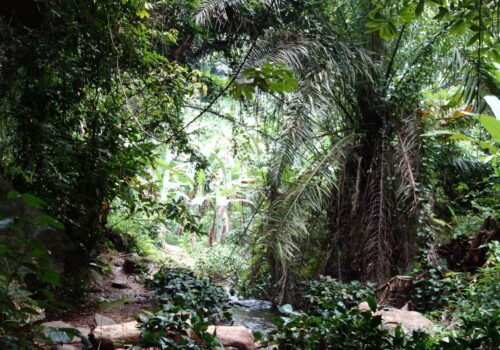

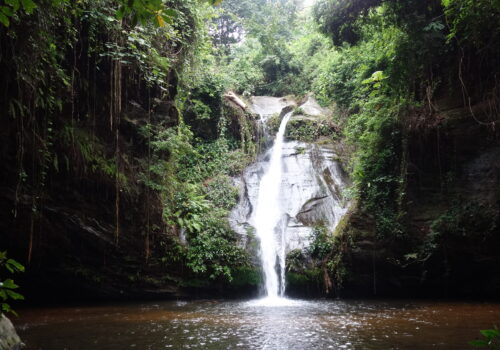
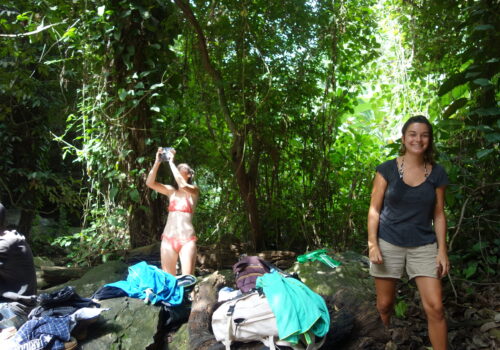

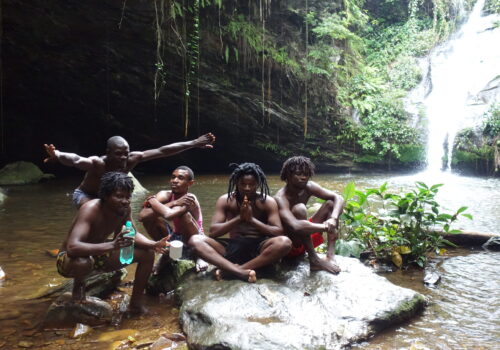





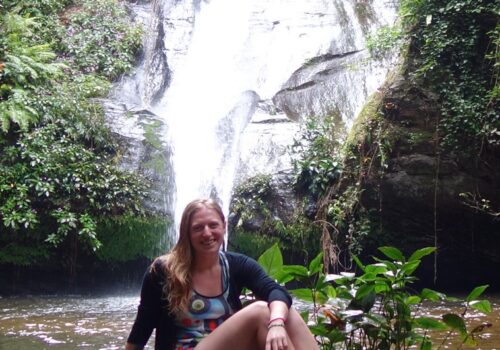
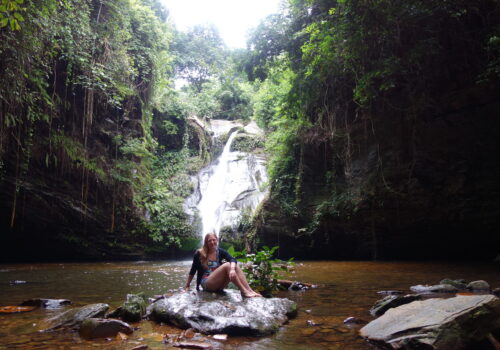
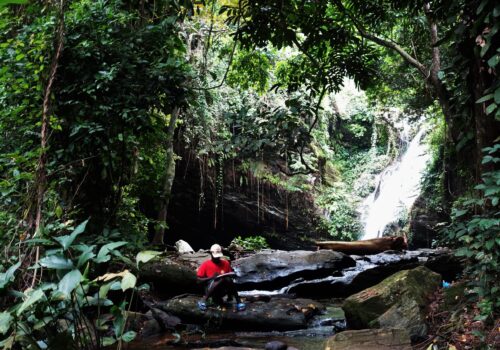

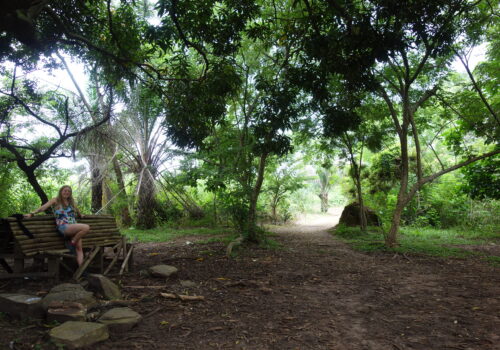
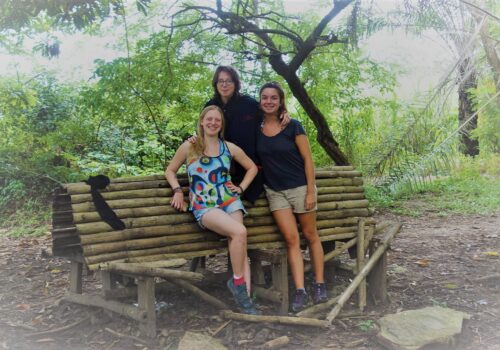
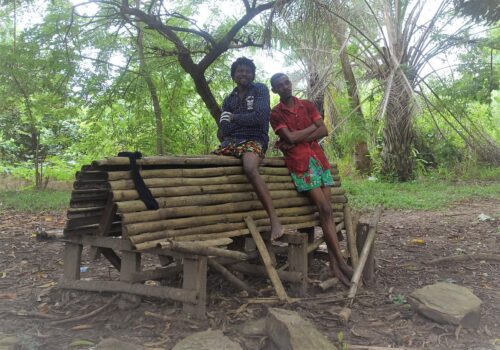
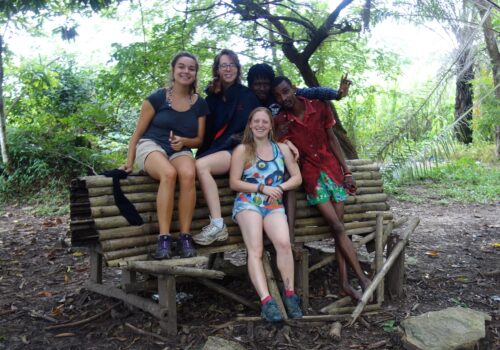
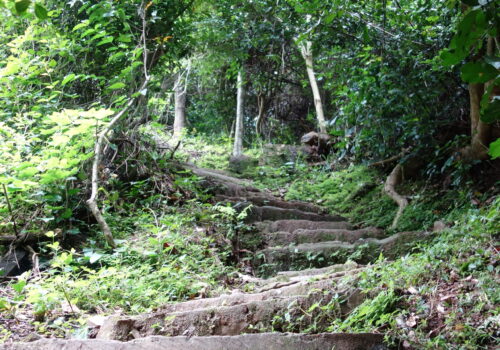
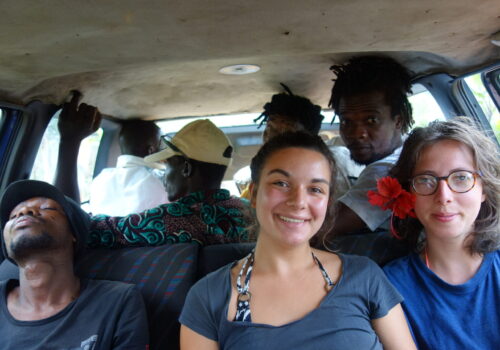

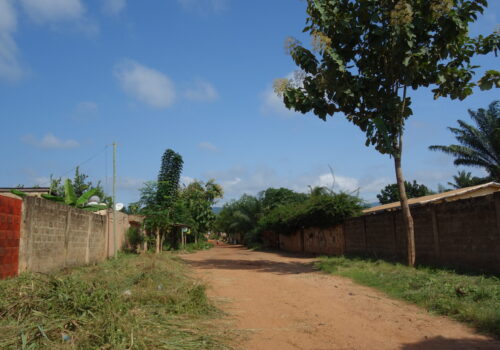

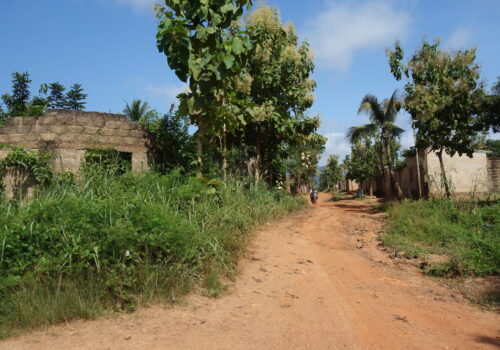
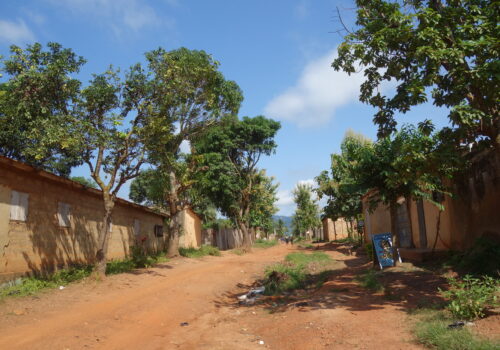

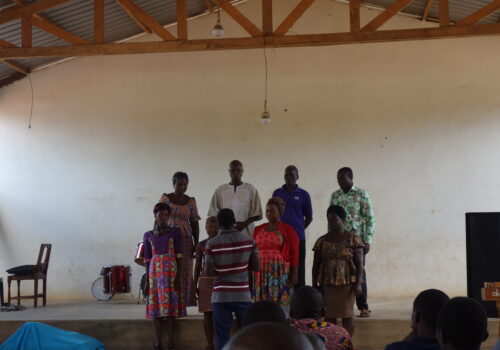


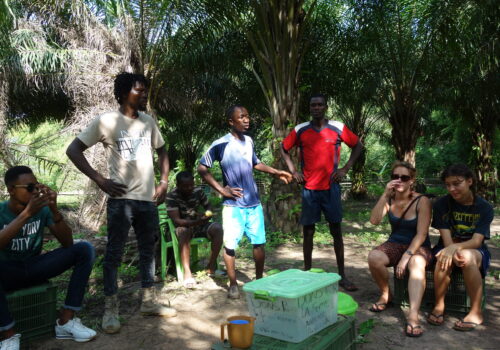
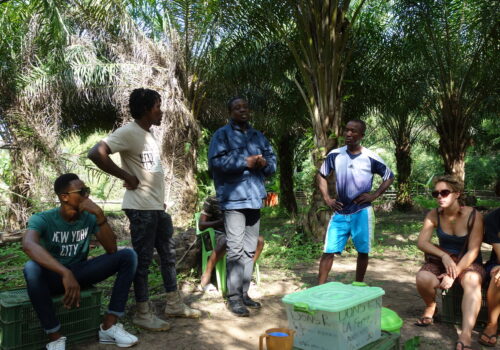


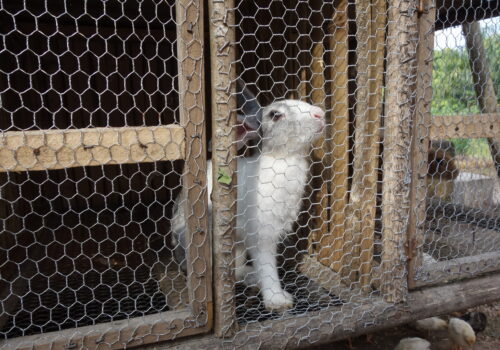

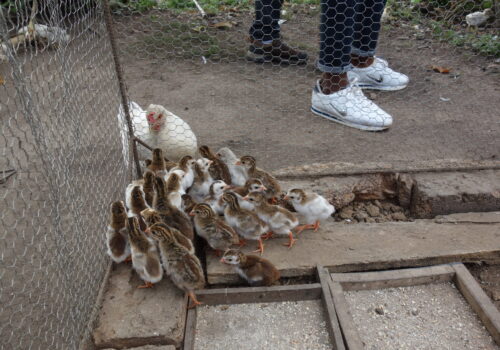


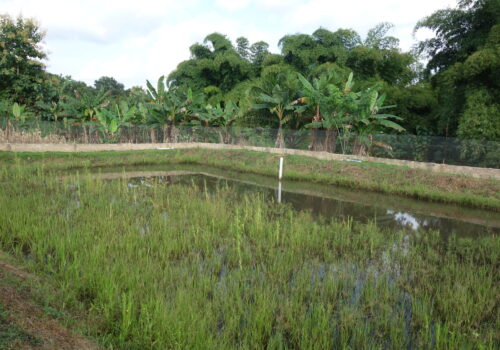

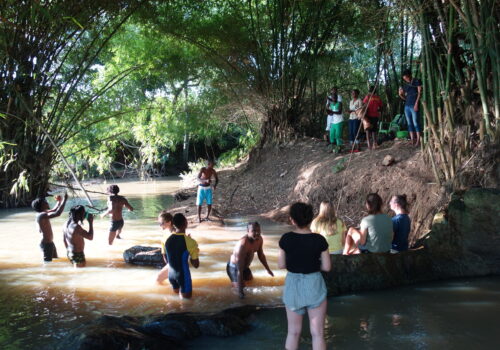
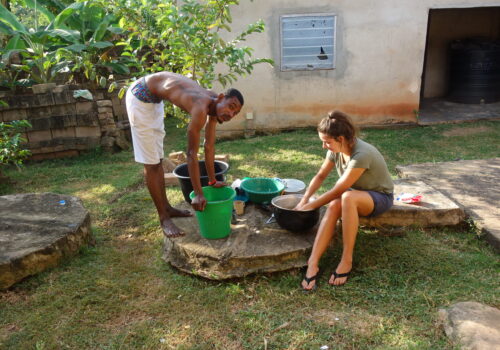
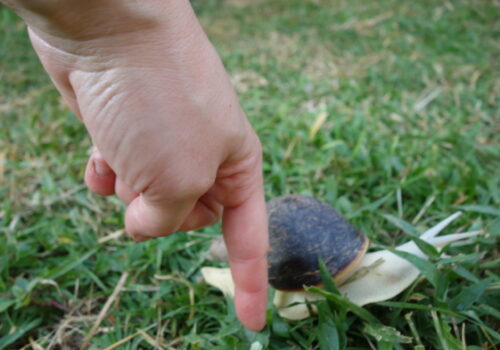

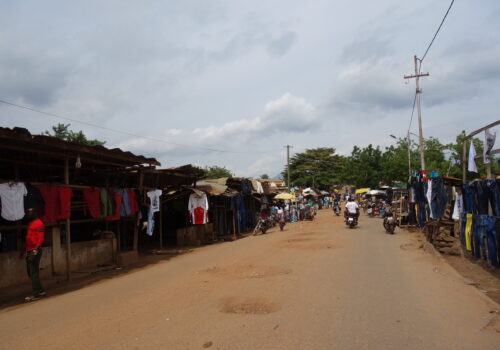



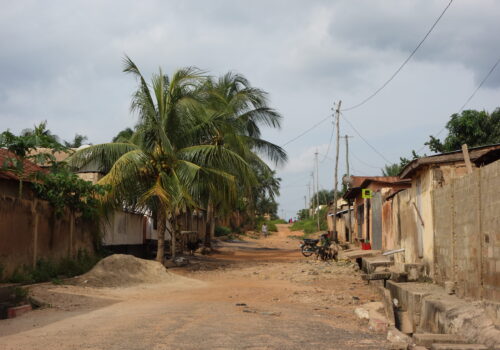
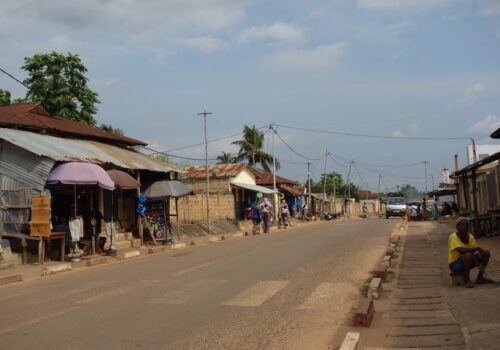

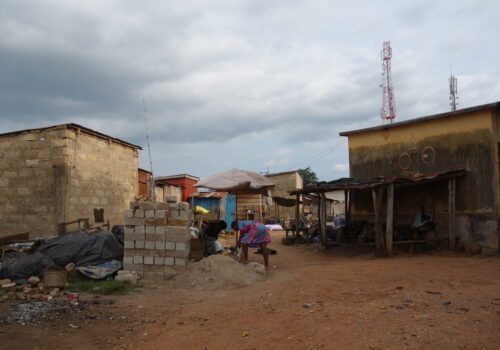
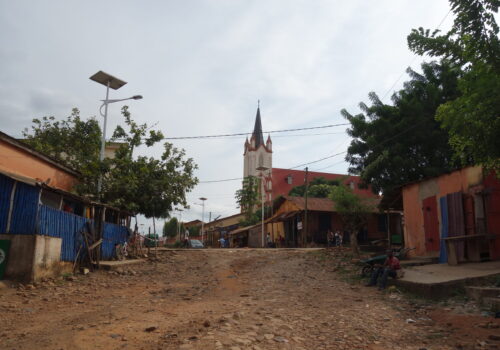
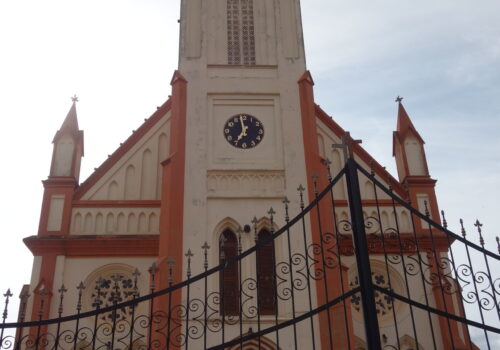

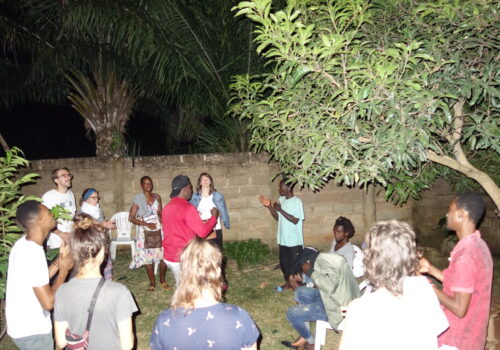





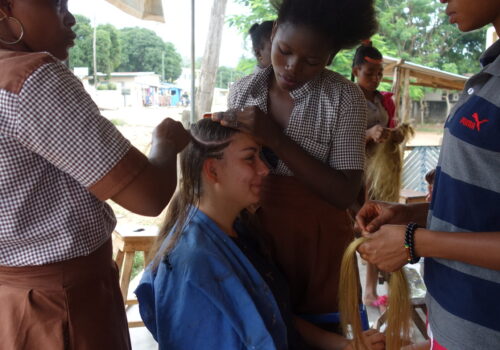
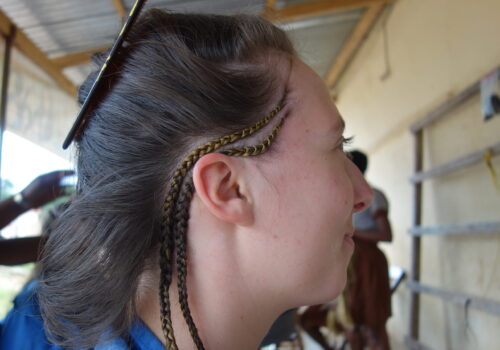
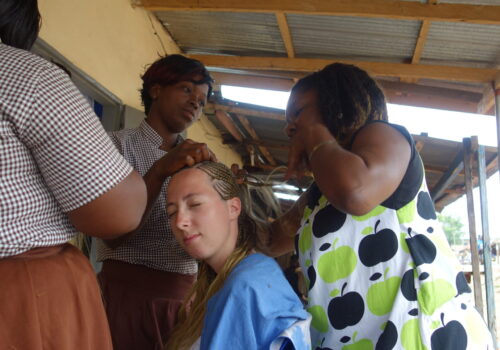


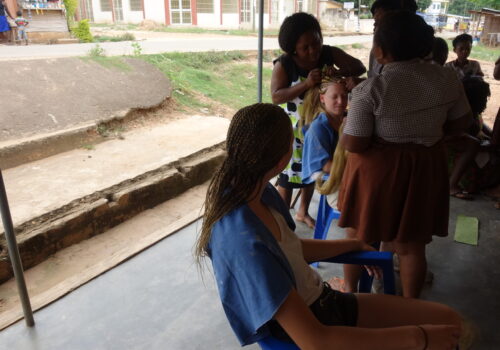

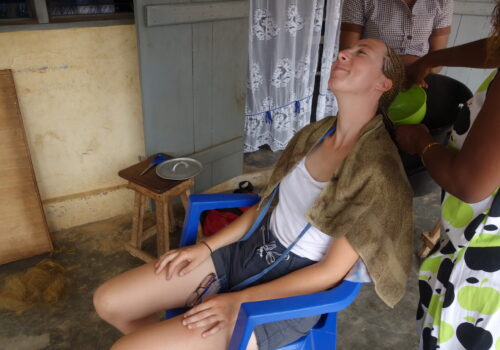

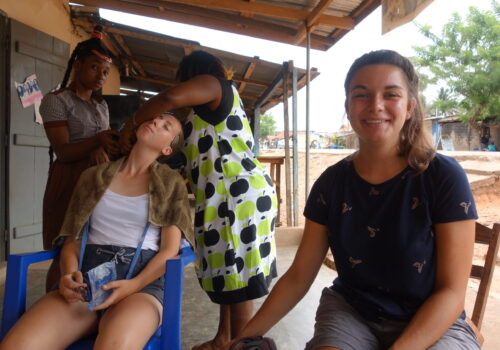



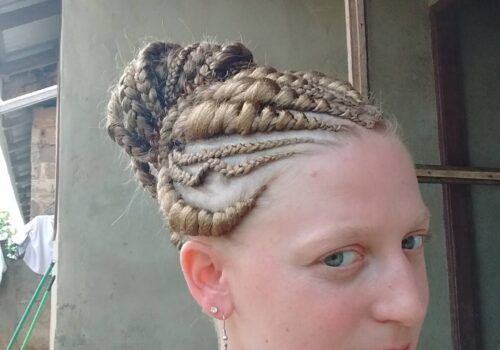
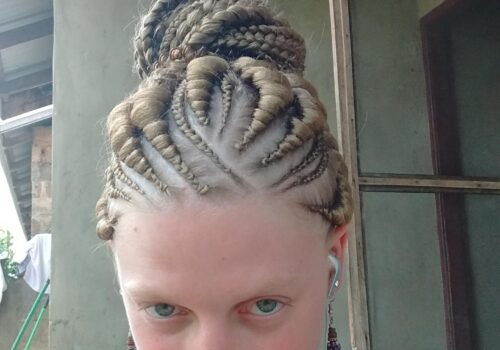



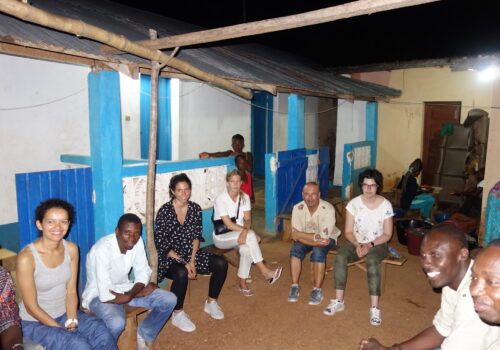



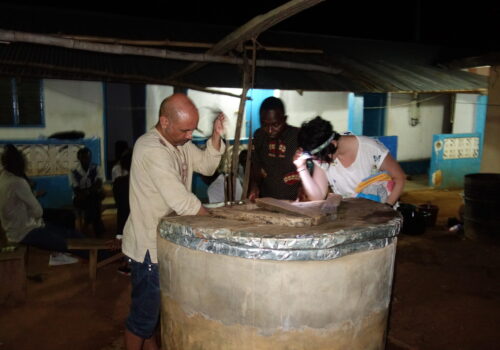
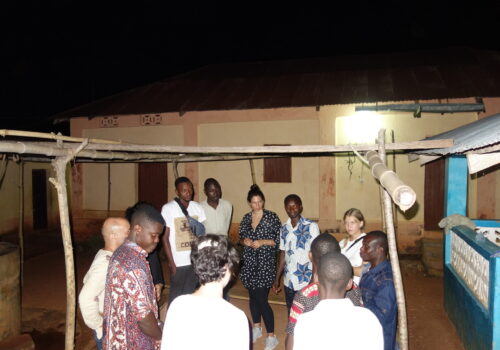
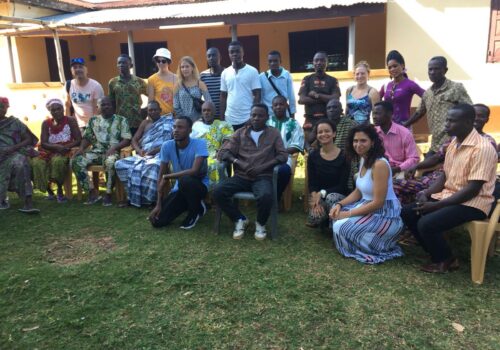


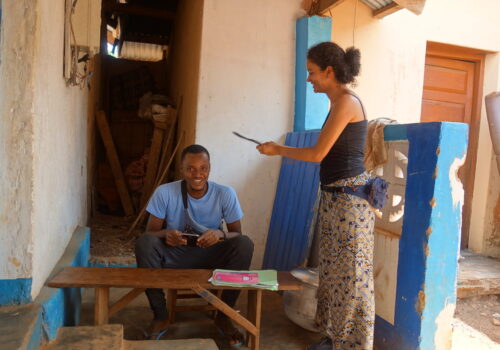
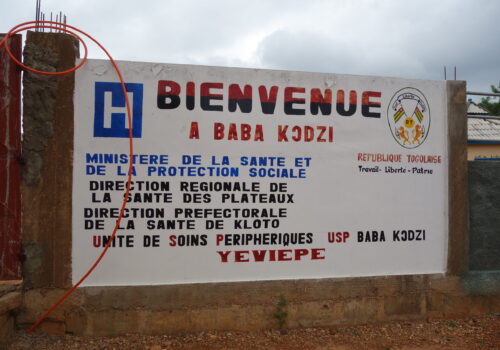
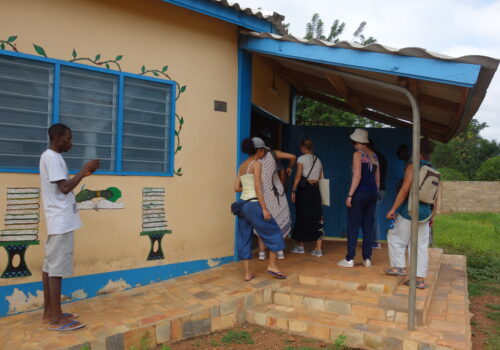
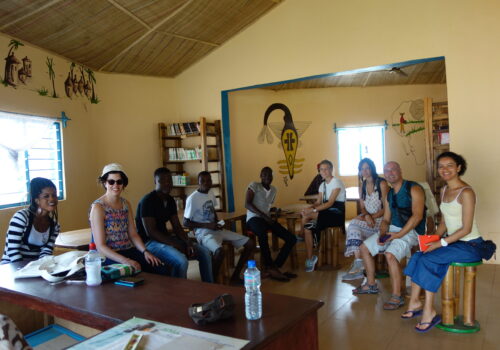

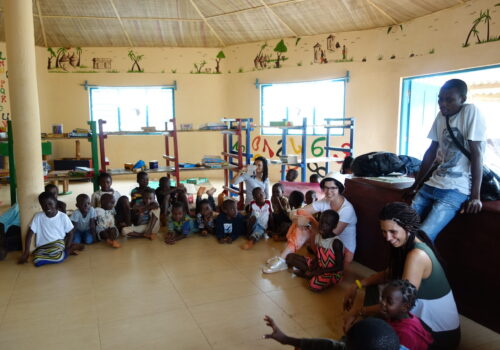


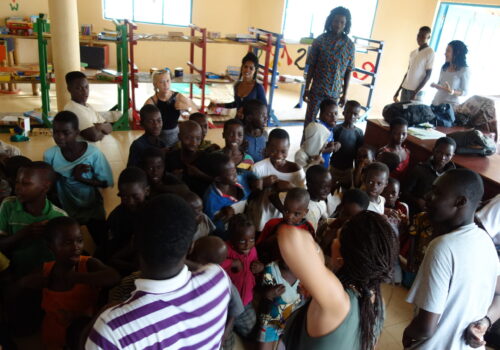
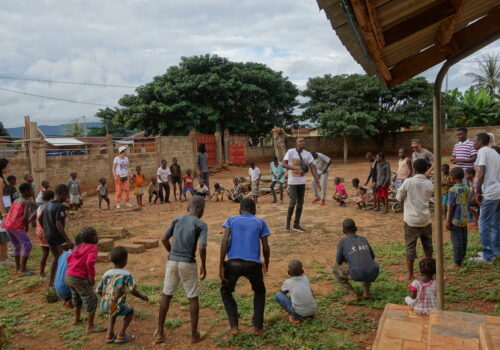
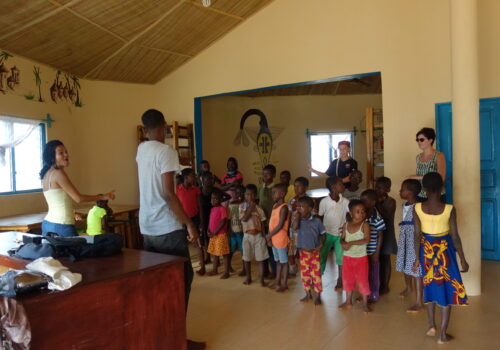
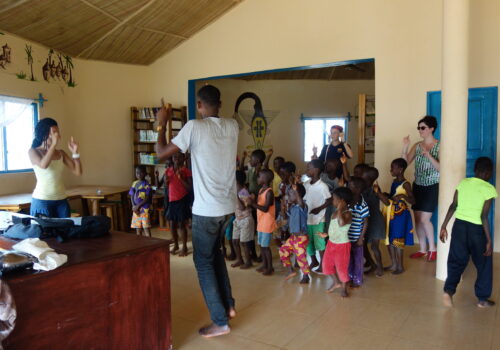
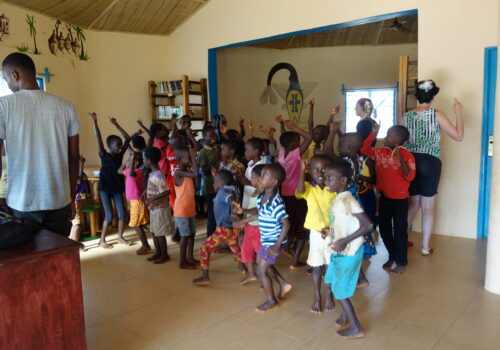

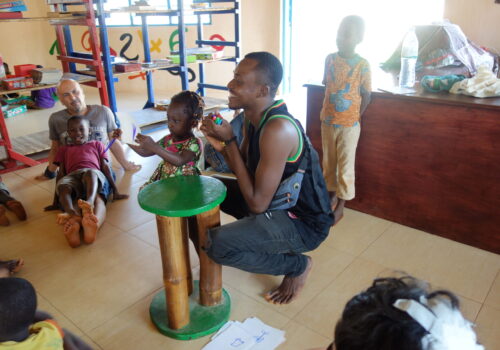



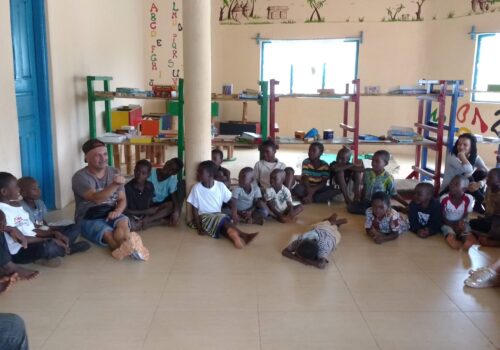
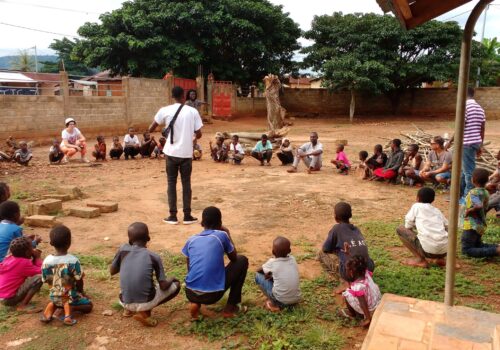
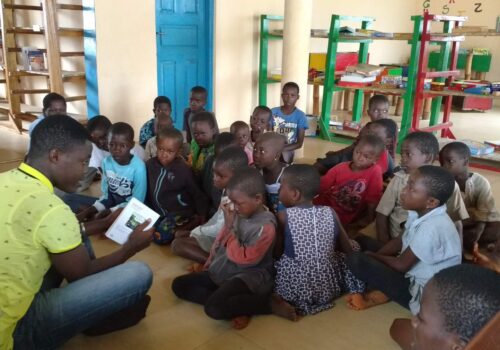




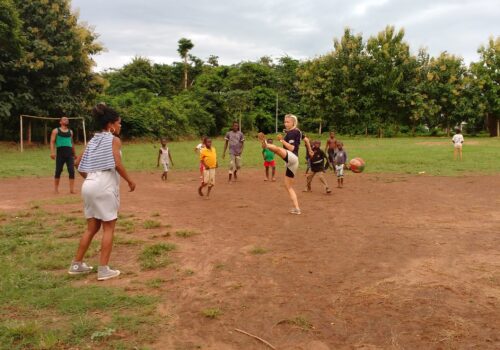
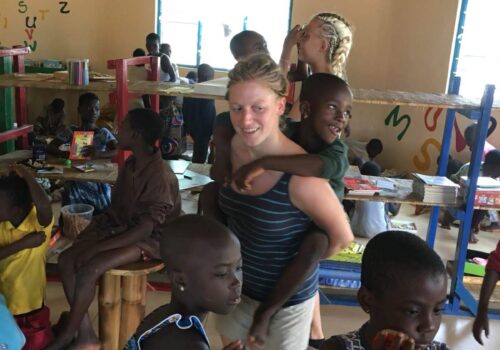
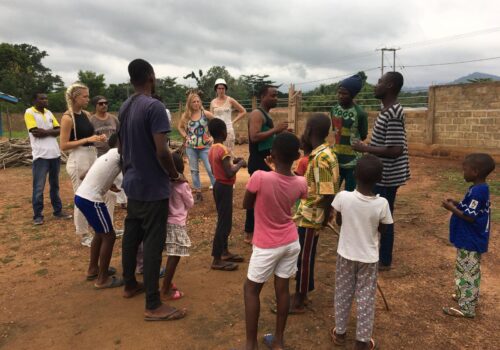
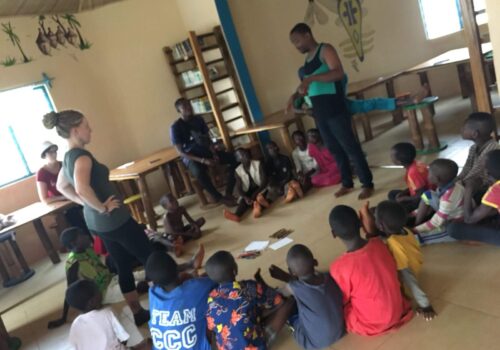
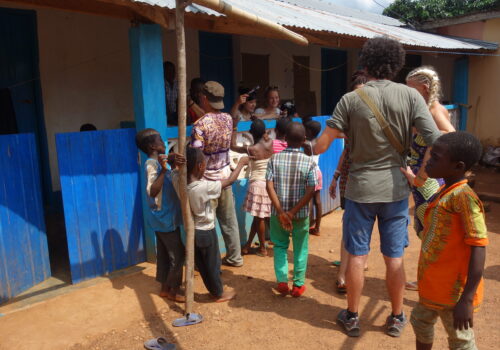

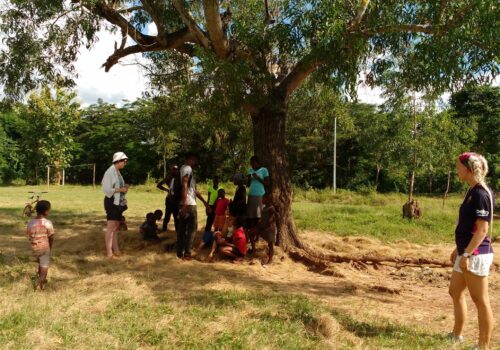

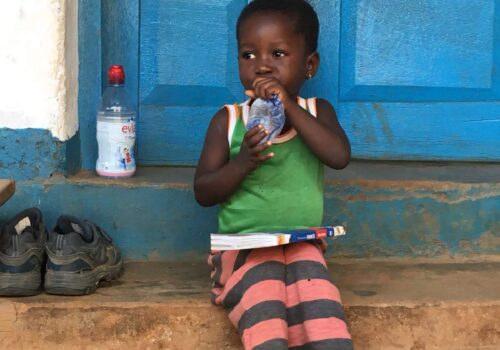
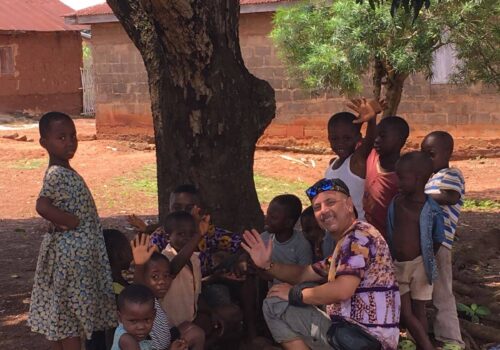

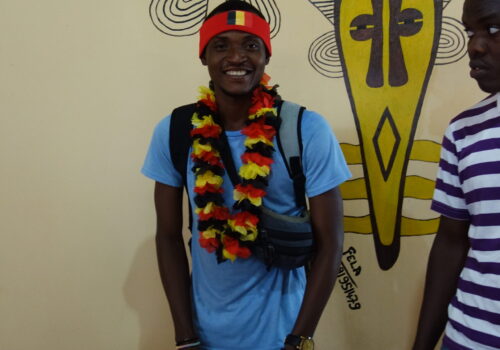
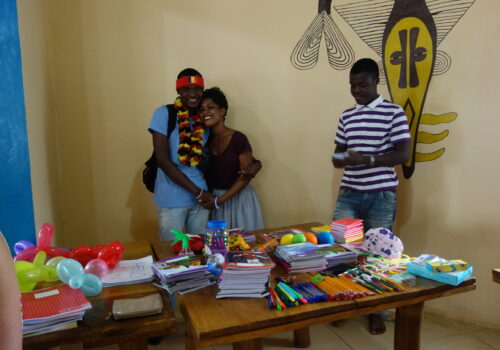
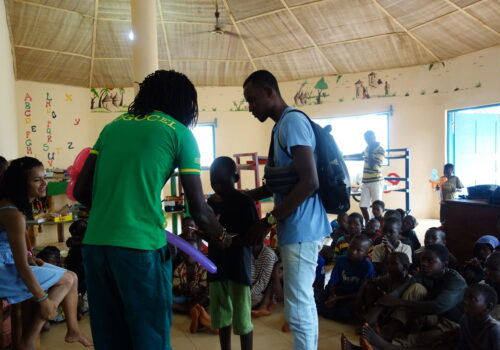







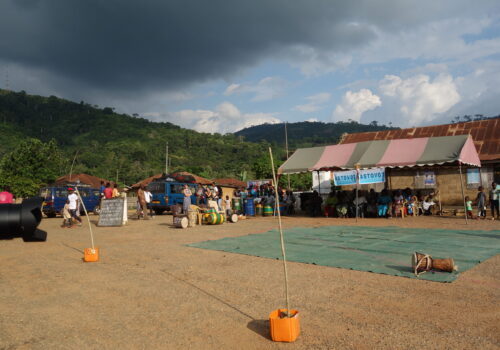

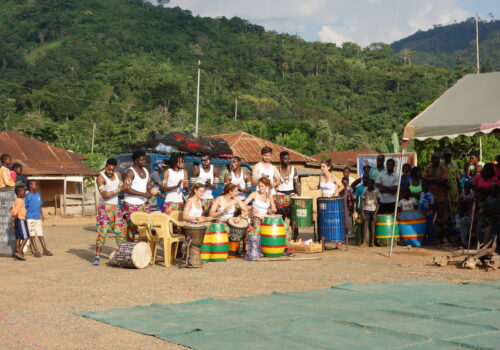
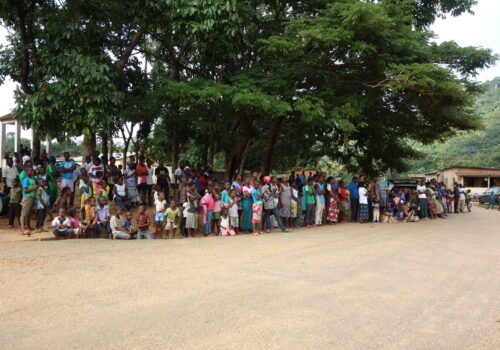

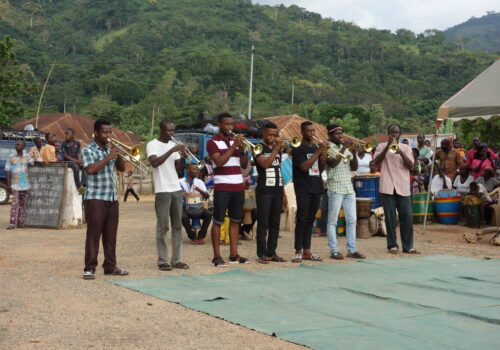

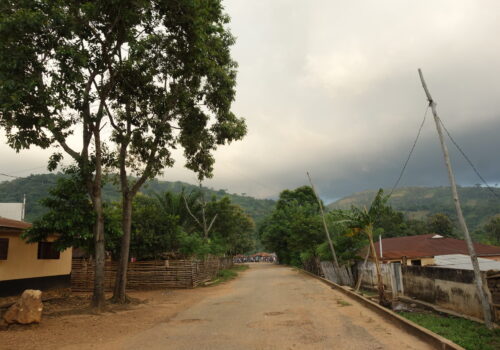
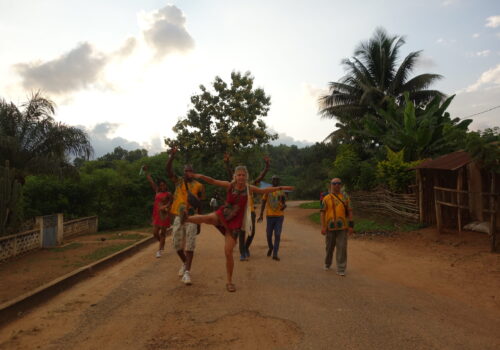
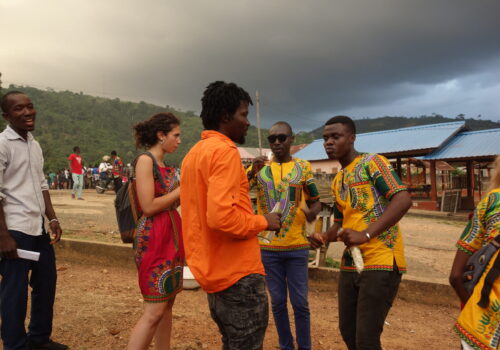
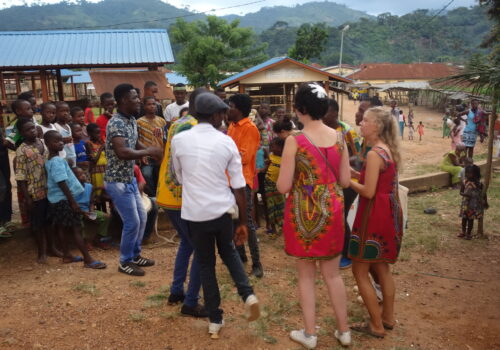
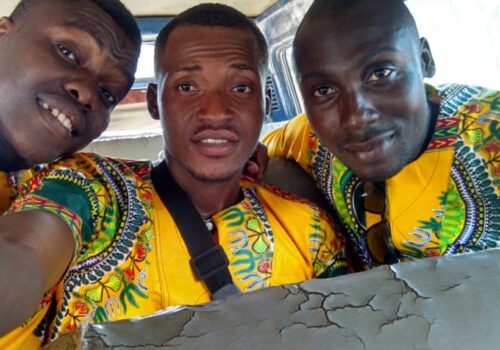
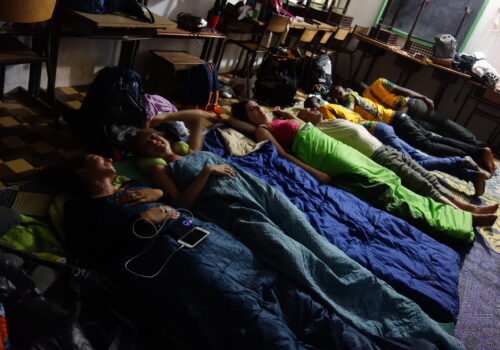

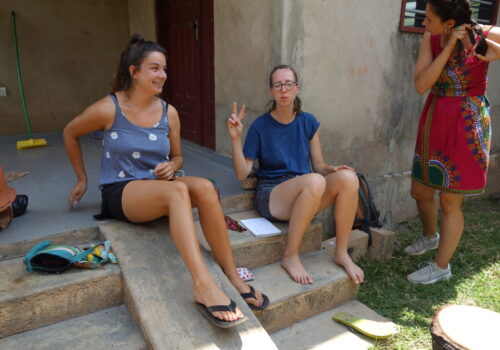

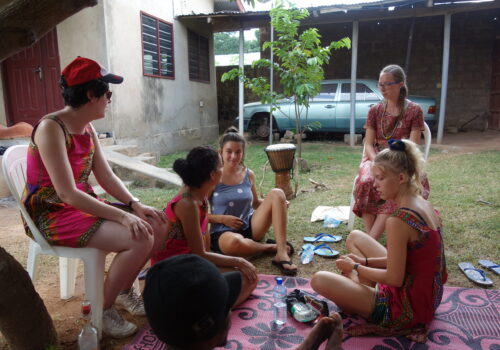
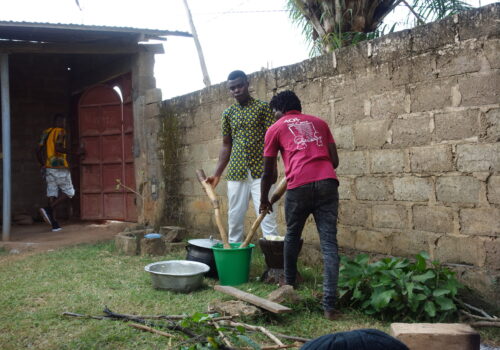


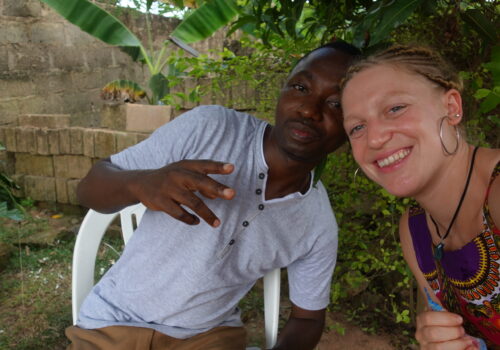
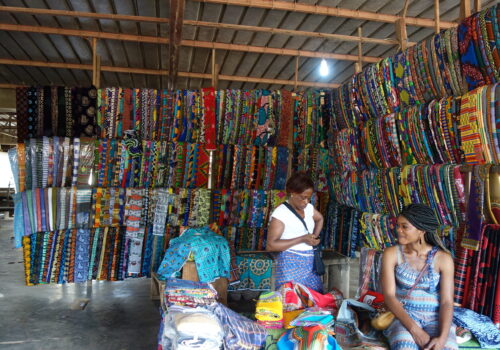
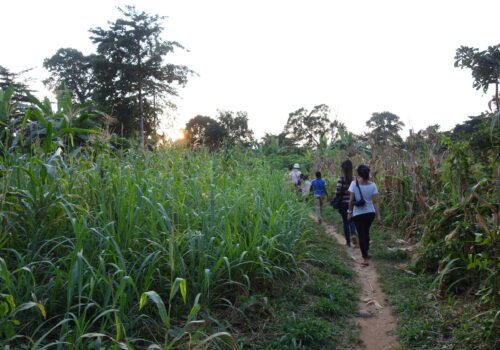
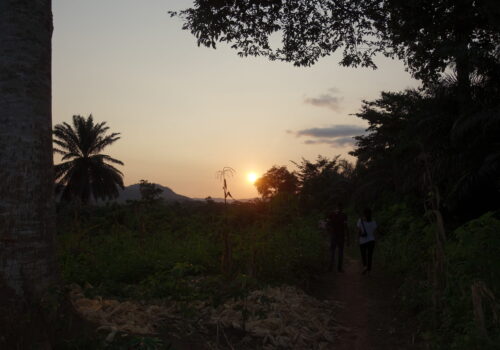




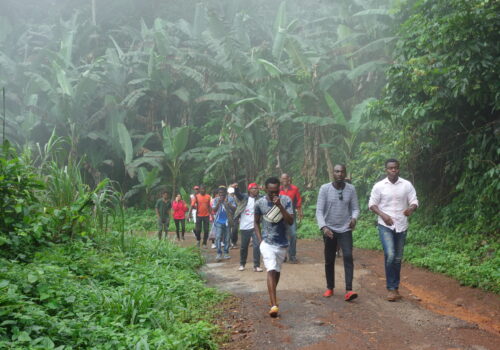
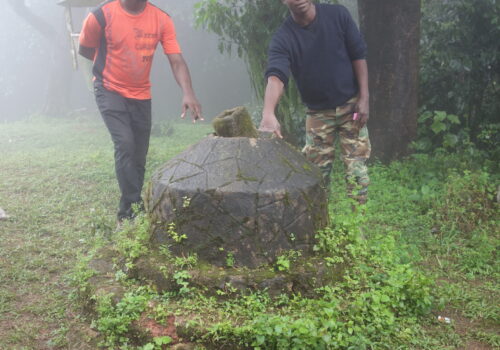
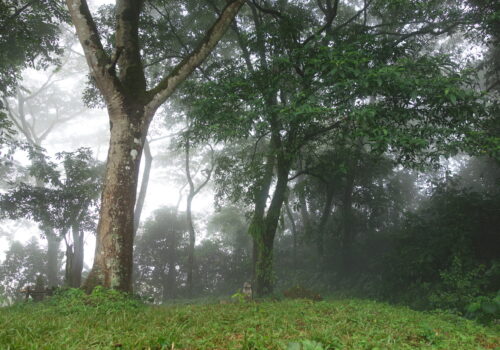

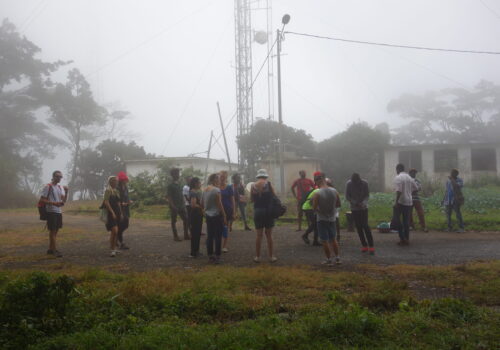
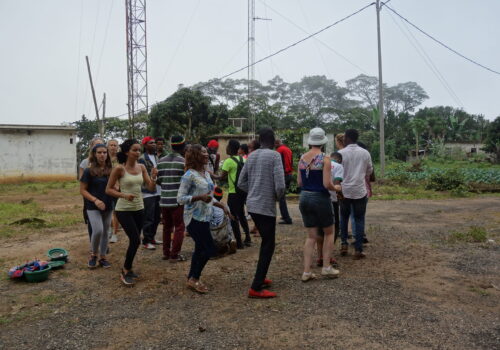
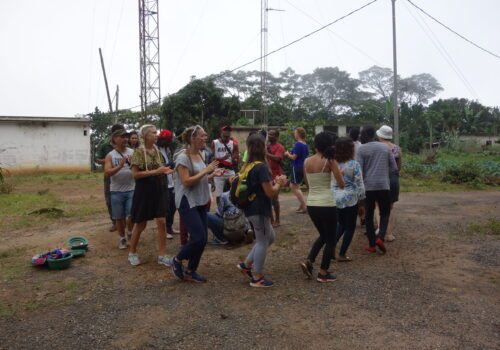
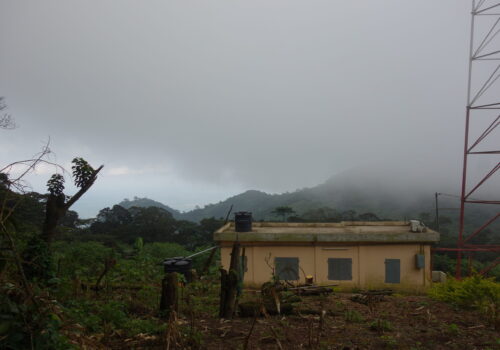
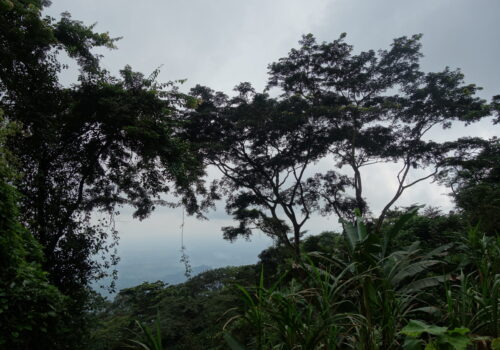
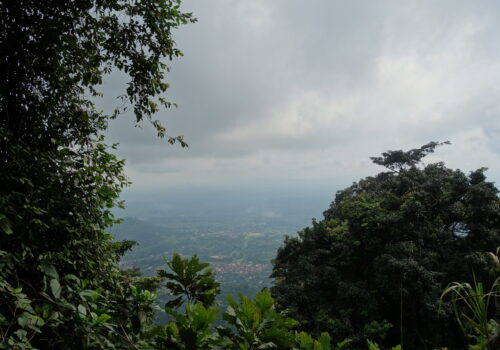

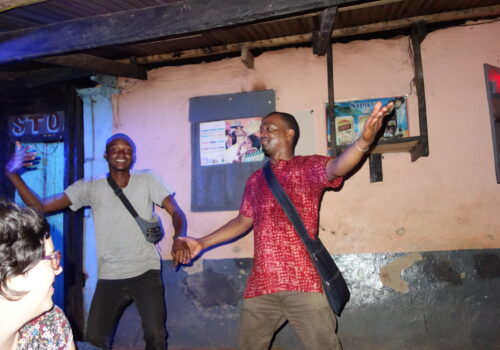


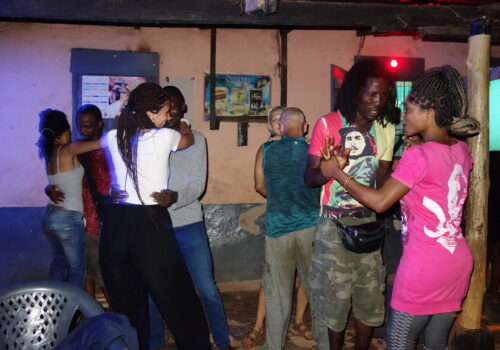

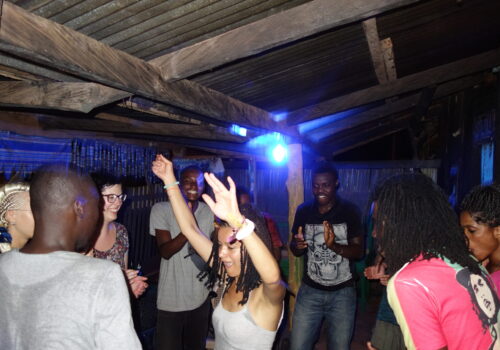


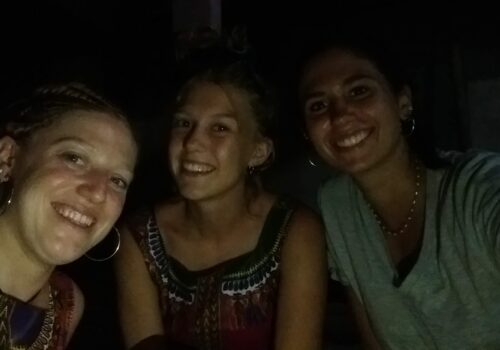



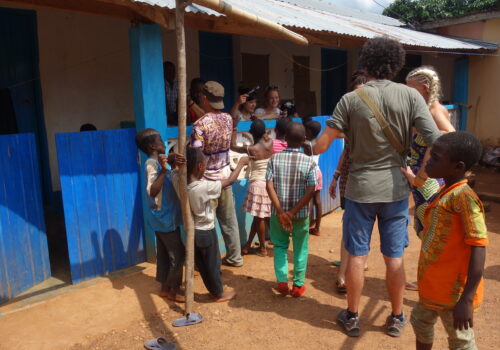

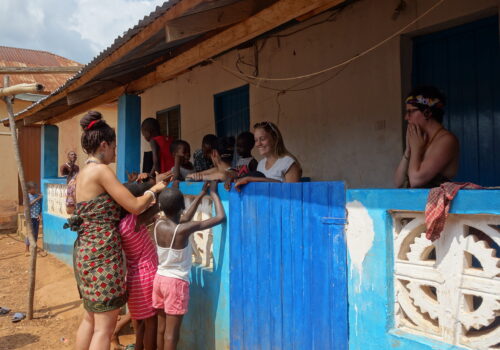
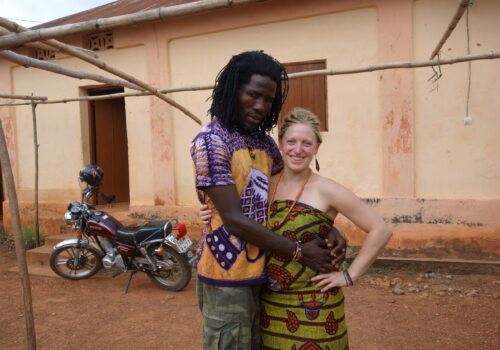
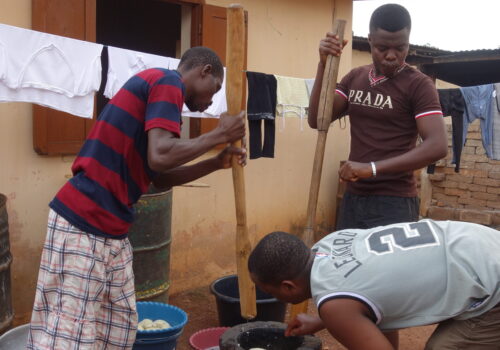

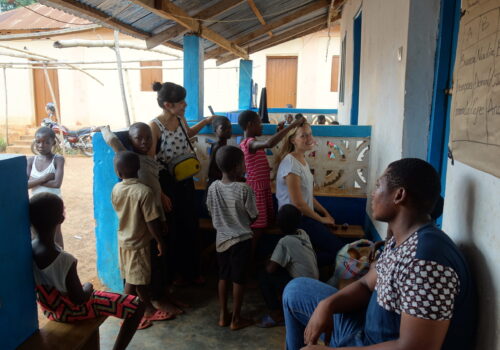
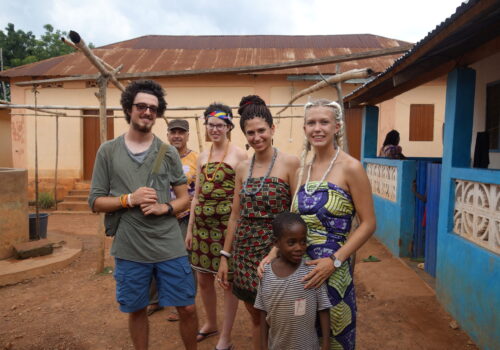


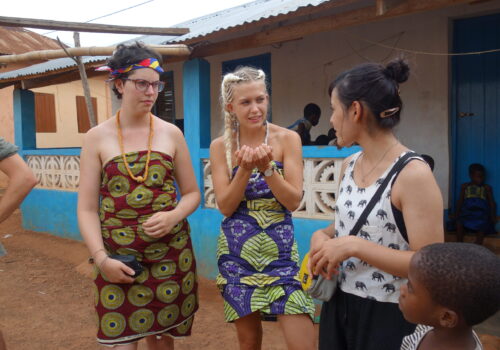
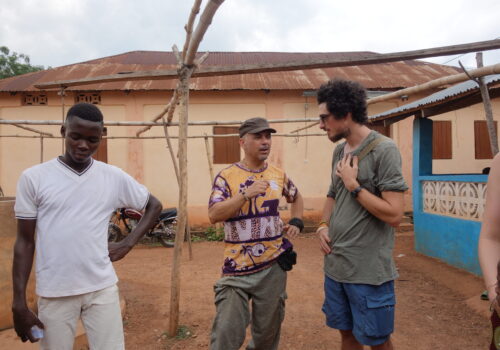
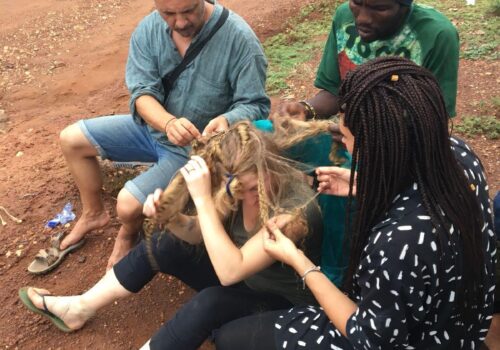
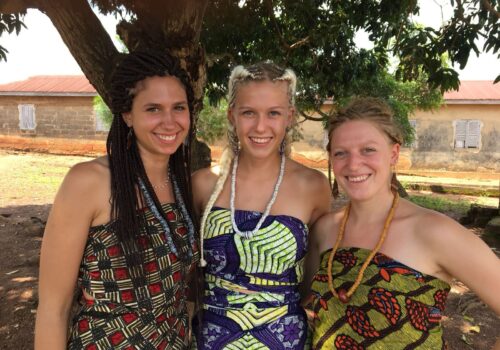




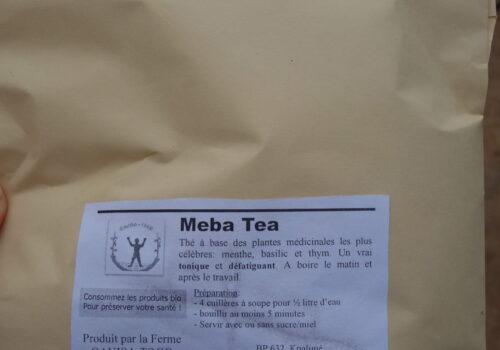
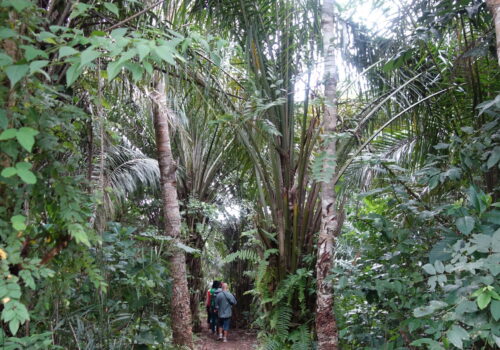
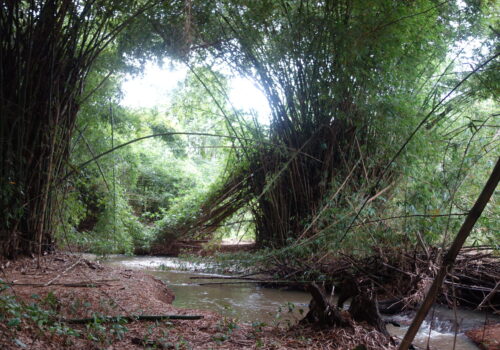
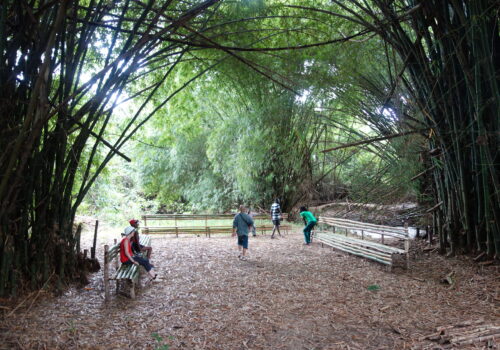
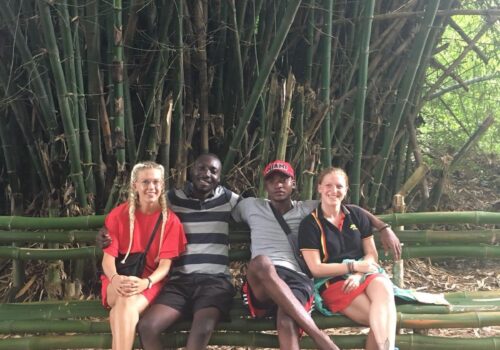
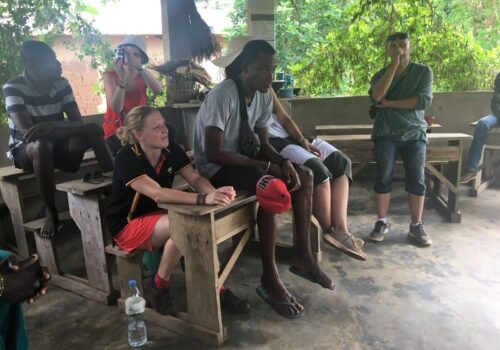
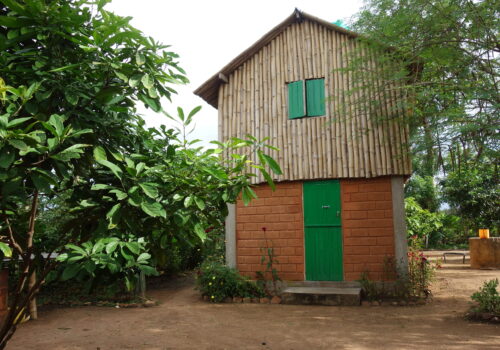



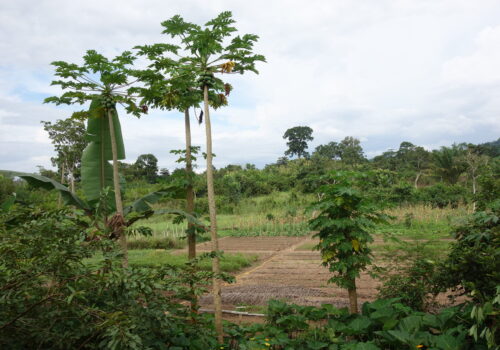
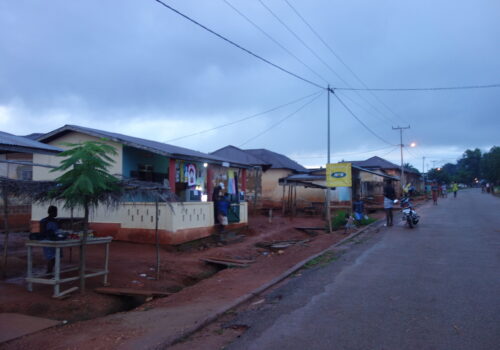
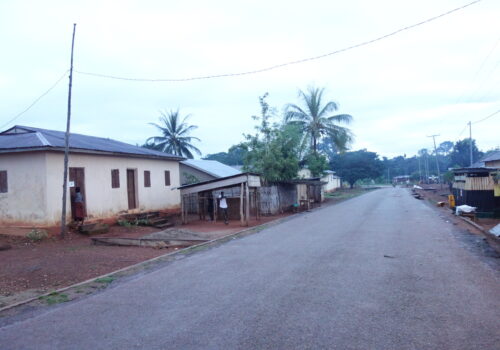


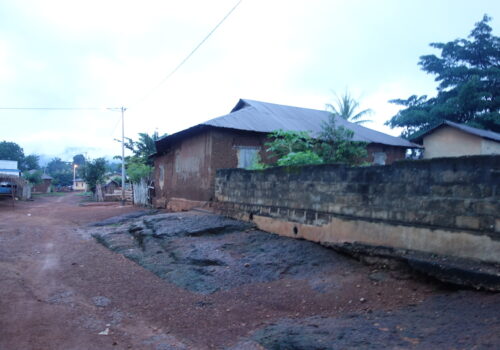

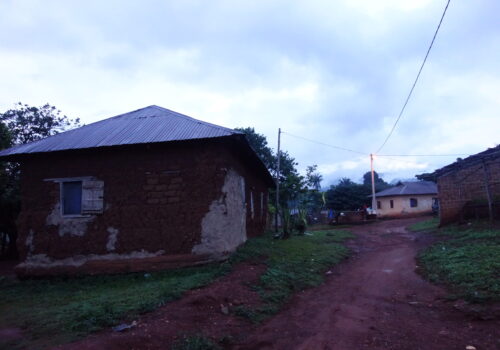

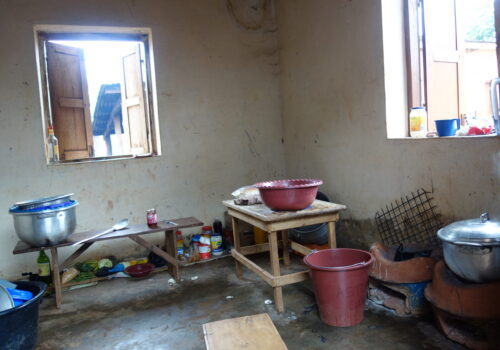


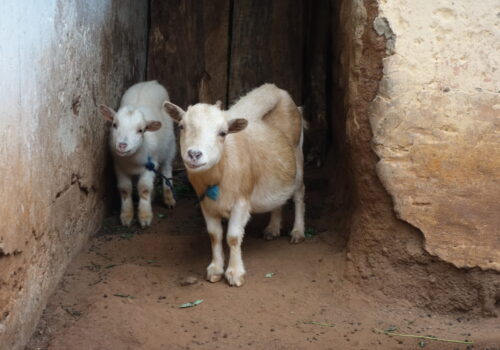


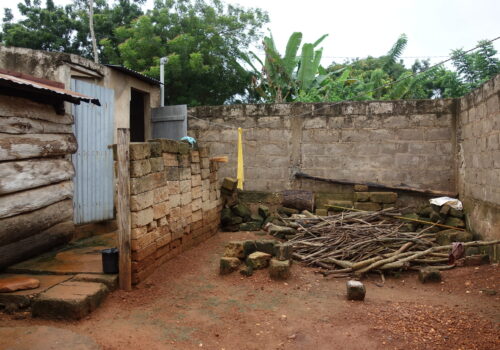


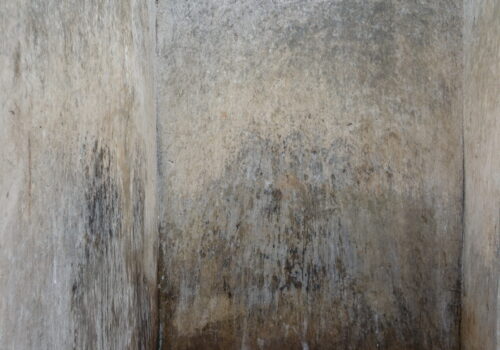


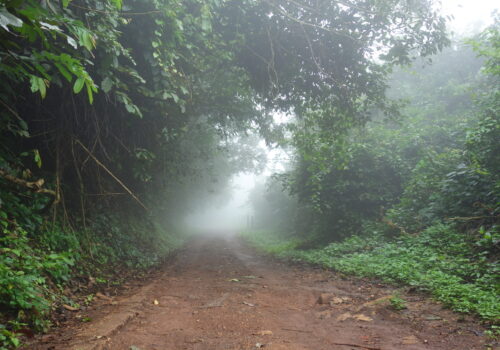

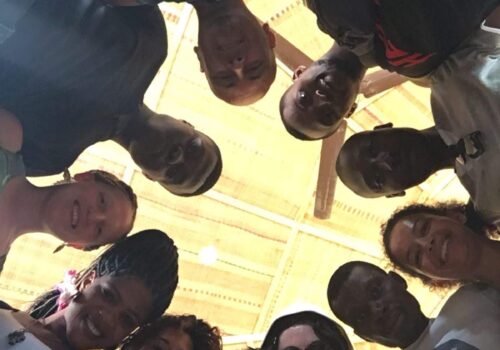


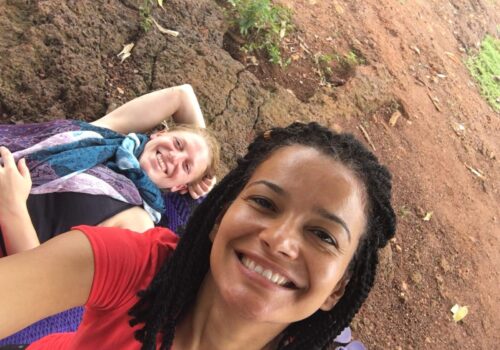
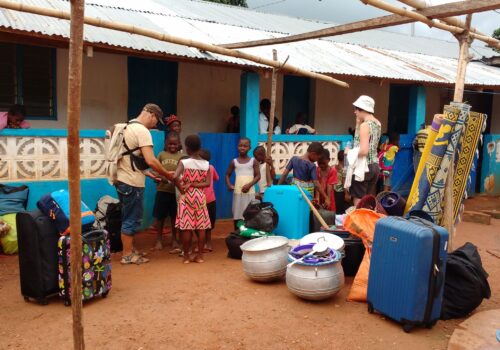




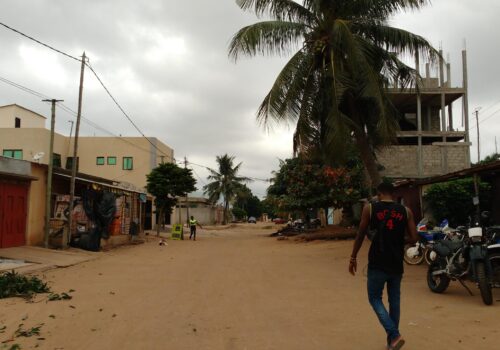

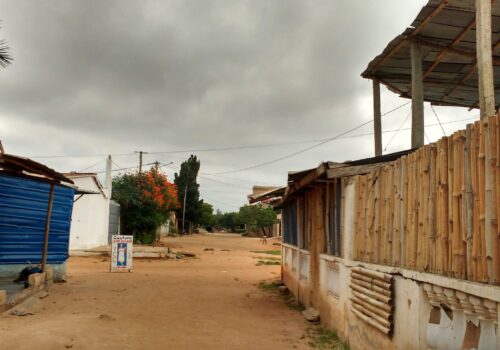
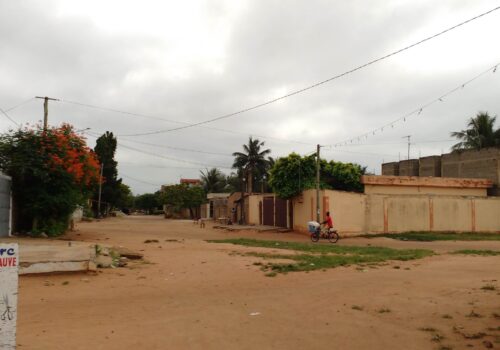
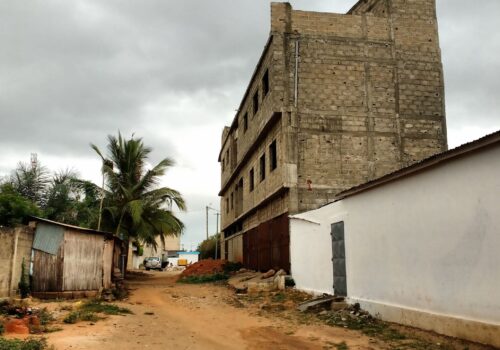
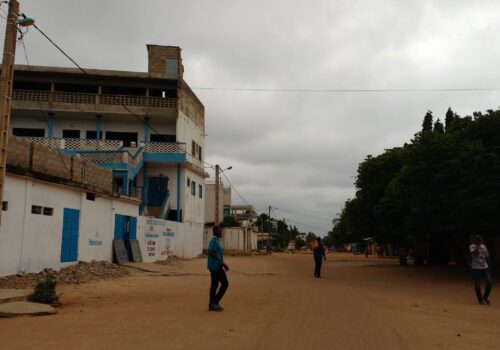

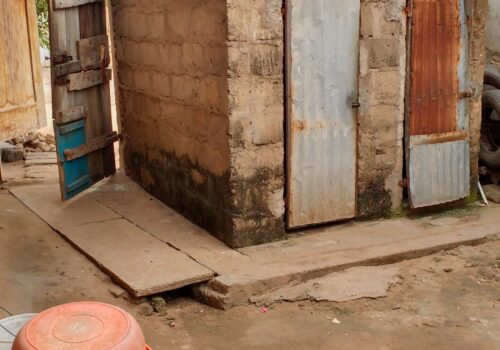

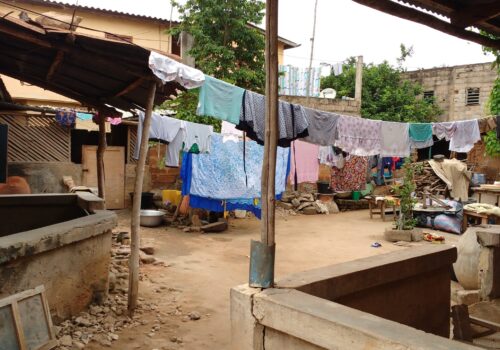
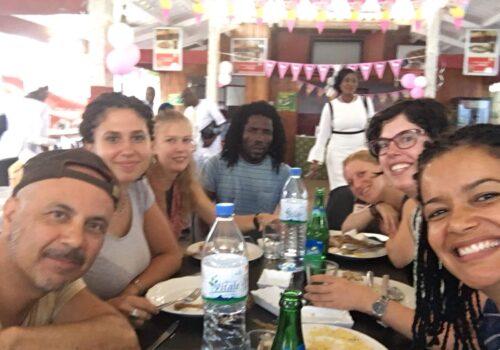
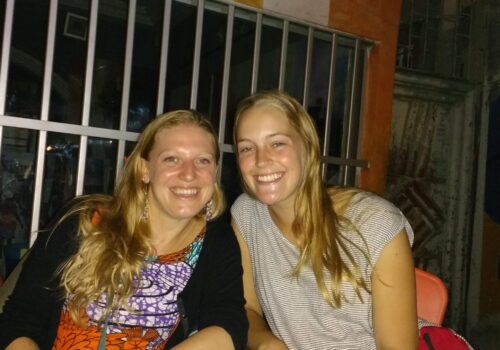


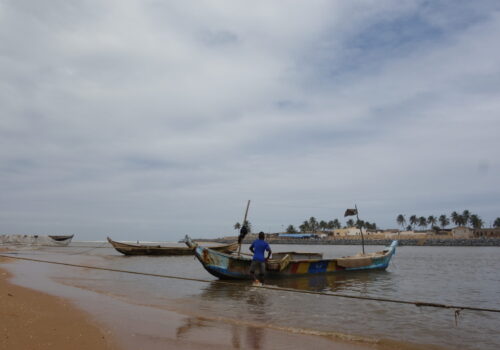
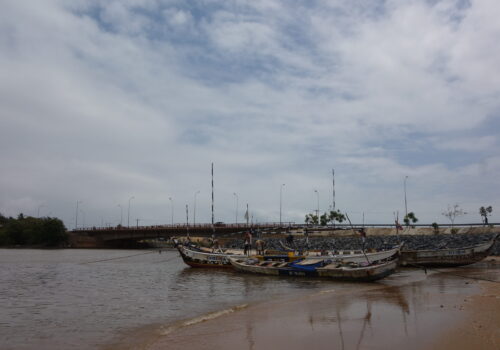


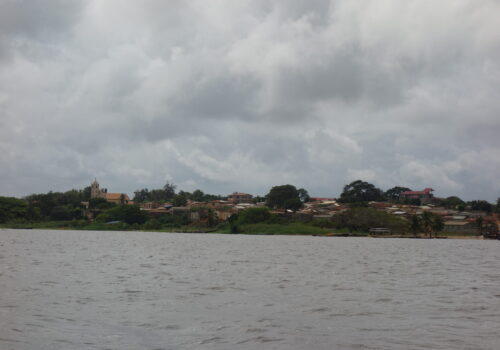
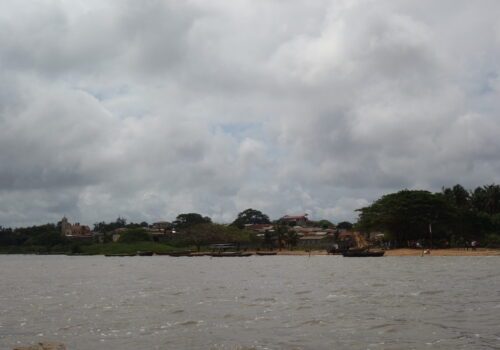
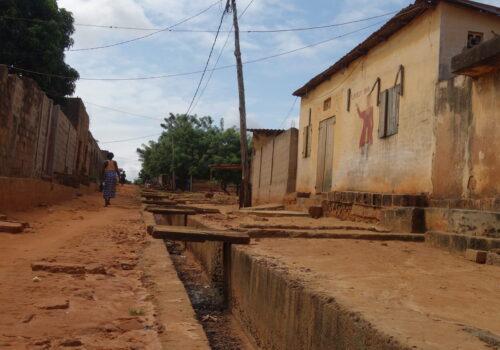


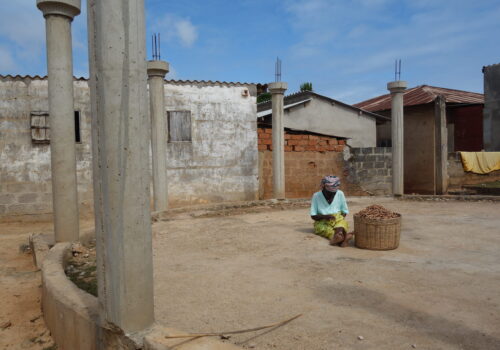
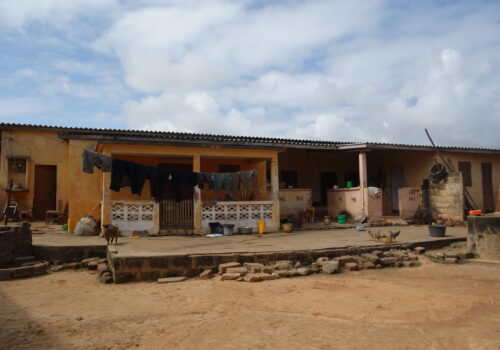
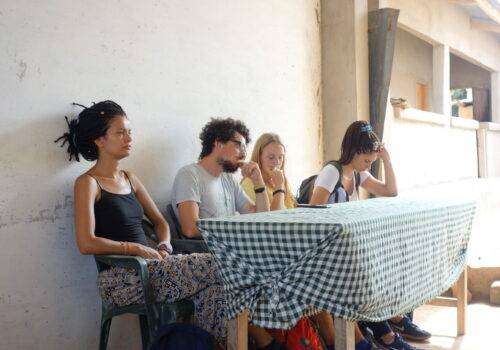


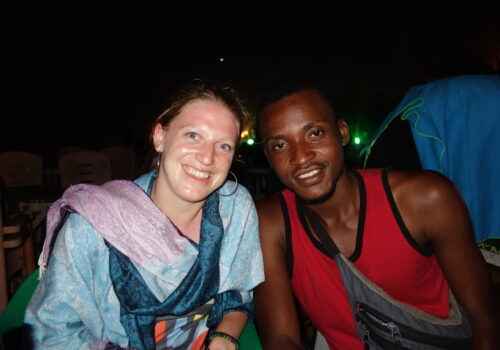
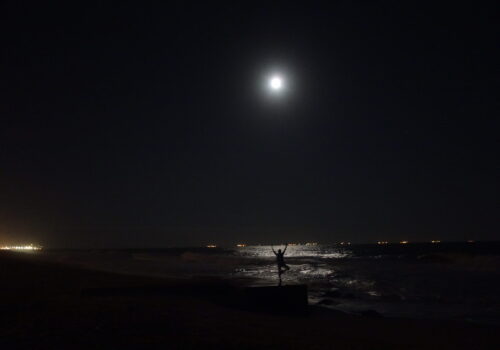


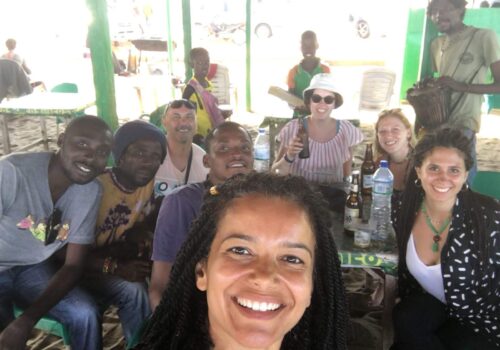
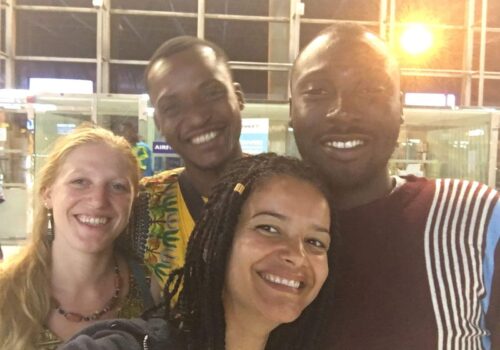
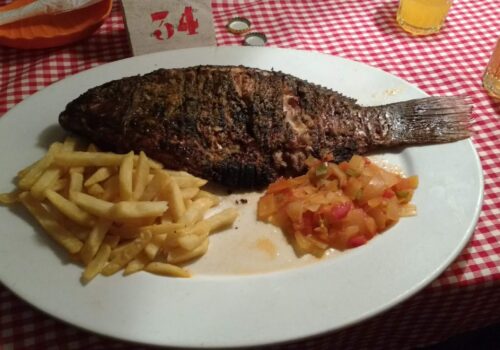




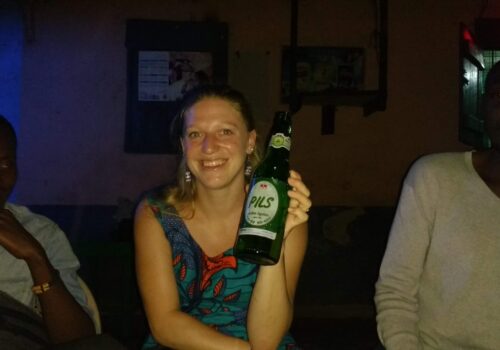
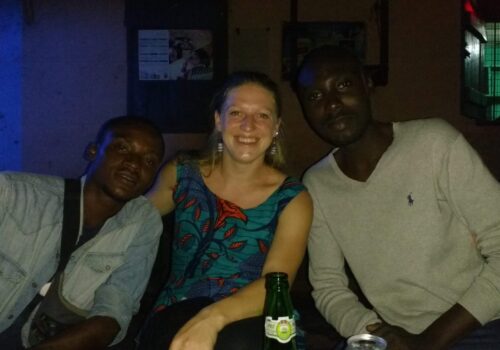




Leave a Reply